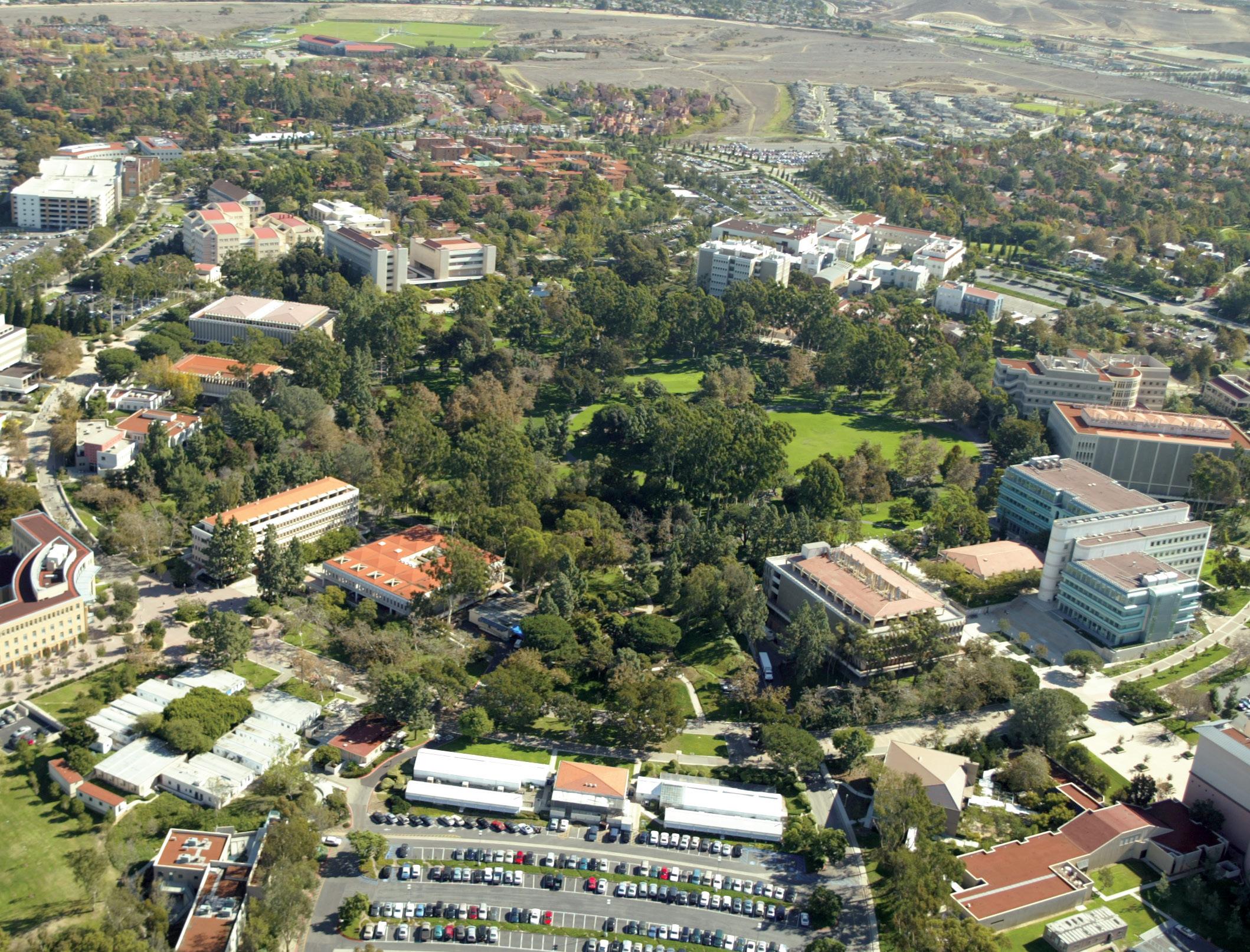






























































































































• Tomorrow’s problems cannot be solved with yesterday’s science.
• At the Ayala School, we are forging ahead.
• Creating new collaborations.
• Daring our scientists to think outside the lab.
• To unravel the mysteries that have plagued us for generations and tackle the major challenges that lie in front of us.
• Biologists work with physicists. Ecologists work with engineers.
• Barriers are eliminated and new avenues reveal themselves.
• We reach out to the community.
• And they reach back.
• For we believe our work should resonate beyond these walls.
• We believe the biological sciences are much more than a school.
• More than a curriculum or an experiment in a lab.
• They are a means to an end.
• An end to cancer.
• An end to malaria.
• An end to Alzheimer’s, starvation and climate change.
• And the beginning of a new era.
• An era defined by hope, health and humanity.
Dear colleagues and friends,
It is my great pleasure to write again to you in our annual report, my second as Dean of the Ayala School of Biological Sciences. I am excited to share this report with you and reflect on the numerous accomplishments and accolades of our academic community. This past year has been truly extraordinary for UCI and the Ayala School of Biological Sciences. UCI solidified its position as one of the preeminent research universities in the world. U.S. News & World Report ranked UCI as the ninth best public university in America, our first entry into the elite status as a top ten public university. The New York Times ranked UCI as the #1 university in the USA for its outreach to low-income students, and we are also quite proud that UCI was ranked #1 among American universities 50 years and under by Times Higher Education in 2014. I can assure you that my colleagues and I will continue to work hard to accelerate our ascendancy so that UCI achieves even greater levels of success.
The question is why is this the Century of Biology? Part of the reason stems from the fact that every 10-15 years, a billion new people are added to the population of the earth. Another reason is that people are living longer, with lifespans now approaching 80 years and beyond; for example, the fastest growing segment of our society are individuals over 90 years of age, and a recent statistic suggests that more than half of children born in 2000 will live to be 100 years old. This population explosion creates new challenges in health, food production, energy, and environmental sustainability. These challenges are not unfathomable mysteries; rather, they are problems that the human mind can solve with the methods of science. Biologists, working closely with those in other disciplines, will discover the solutions to many of society’s grand challenges.
The Ayala School is eminently suited to meet the major challenges that face humanity in the coming decades. Our faculty are among the world’s leading researchers in a variety of fields, and are pioneering new treatments, innovations, and solutions to help all of humankind. These achievements are detailed in the “Bringing Research to Life” section of the annual report, where we feature some of the cutting-edge research conducted in our different departments.
For example, from the Department of Developmental and Cell Biology, Professor Arthur D. Lander provides a summary of the incredible advances in systems biology and how the Ayala School is tapping into this new field of biology. Professor Carl W. Cotman, from the Department of Neurobiology and Behavior, discusses his pioneering work on the effects of exercise on the brain. From the Department of Ecology and Evolutionary Biology, Dr. Peter A. Bowler gives an insight into ways the university is working on solutions to California’s drought. From the Department of Molecular Biology and Biochemistry, we include a feature on Professor Anthony A. James, whose groundbreaking research using gene-editing technology led to the generation of a malaria-resistant mosquito capable of preventing the spread of malaria. After reading through the report, I’m confident you will agree that the Ayala School is superbly positioned to play a major role in this, the Century of Biology.
The Ayala School will also play a leading role in helping to inform the community about the significant problems we face, and we will serve as the pipeline for educating the next generation of health care providers, biological researchers, and teachers. Thanks to the support of our community and alumni, such as Dr. M. Marlene Godoy, whose generosity will help many undergraduate students in the Ayala School, we will continue to make significant strides in the recruitment of the highest quality of students.
In the upcoming year, many festivities and events are planned to engage and enlighten the community about the tremendous advances and new knowledge that has been discovered in the Ayala School and their impact on the world. We hope you can join us for many of these events as the Ayala School grows beyond our first 50 years and we embark on the Century of Biology.
With warm regards,
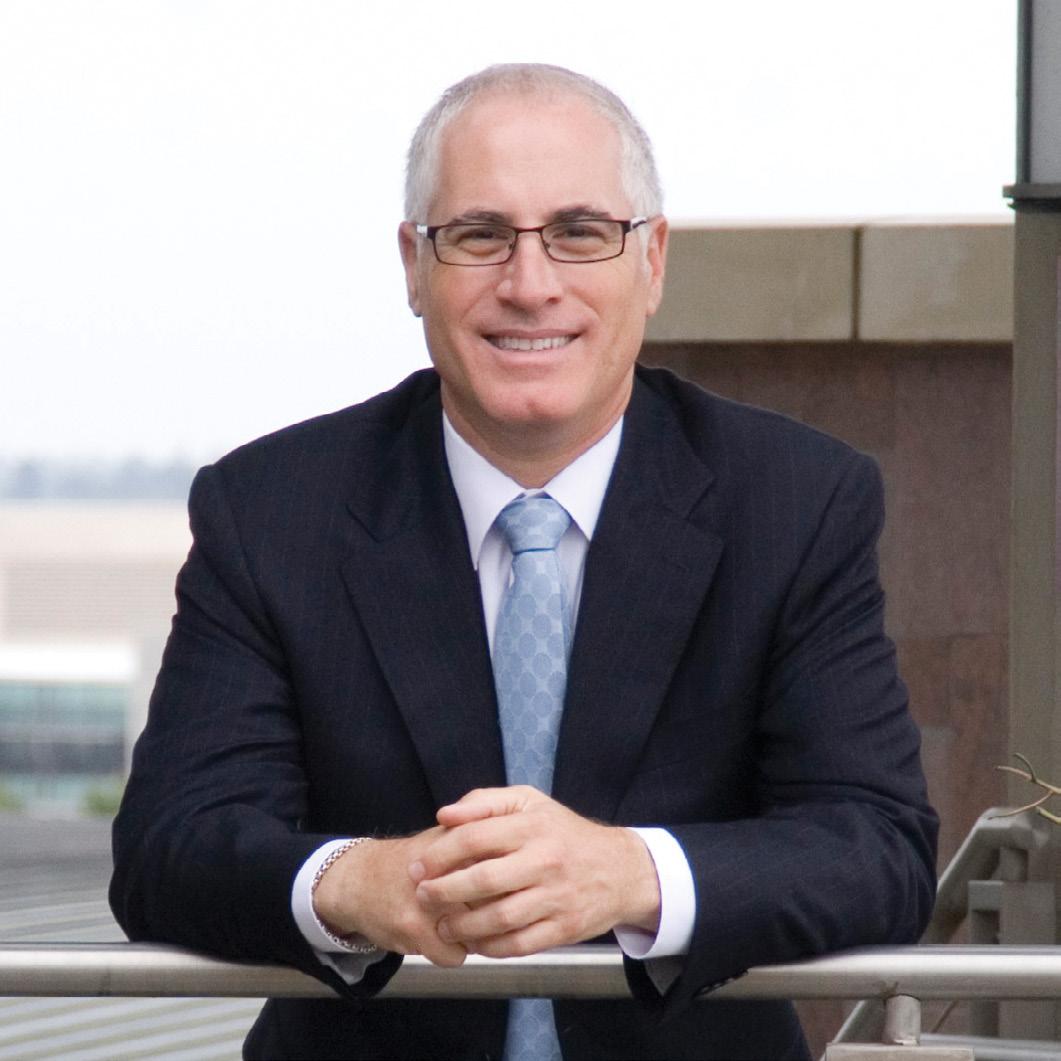
“Our distinguished faculty will unlock the mysteries of life and help usher in a new age of discovery and innovation.”
Frank M. LaFerla, Ph.D.
Hana and Francisco J. Ayala Dean
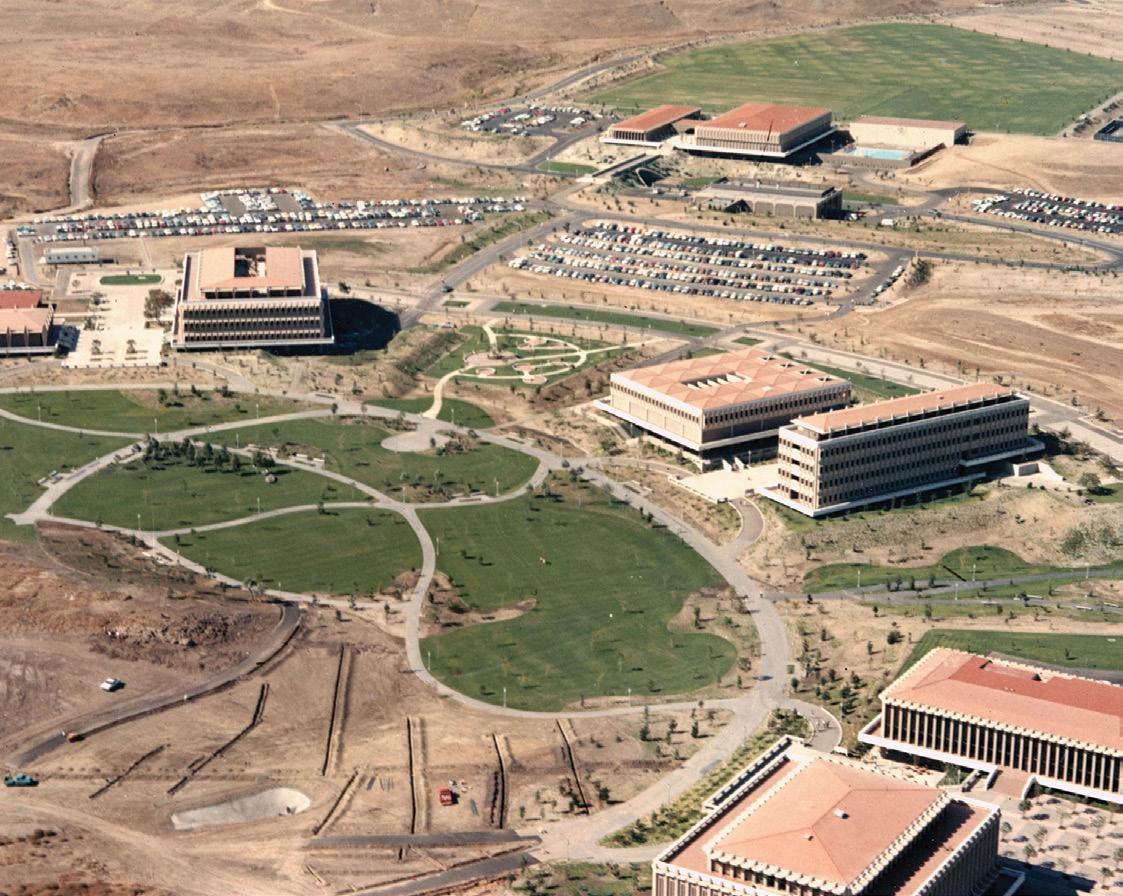
A GREAT TRIBUTE

In June 2015, the School proudly unveiled a monument to commemorate our renaming as The Francisco J. Ayala School of Biological Sciences. The monument is located on the corner of Bison and West Peltason on the UCI main campus.
Drs. Francisco and Hana Ayala, Dean Frank LaFerla, Interim Provost Michael Clark, and select faculty, students, and staff were on hand for the unveiling ceremony. The new Ayala School monument is a symbol to the world that the highest quality of scientific inquiry occurs at our School.
“For our students, this monument reflects hope and excitement, as they embark on their lifelong ambition to become clinicians, researchers, and educators. For our alumni, faculty and staff, it is a daily reminder of our pride to be linked to the name of Francisco J. Ayala; and for our community, it reflects our commitment to solve society’s most pressing
issues as we all work in powerful and creative ways to make a positive difference for our world.”
– Dean LaFerla

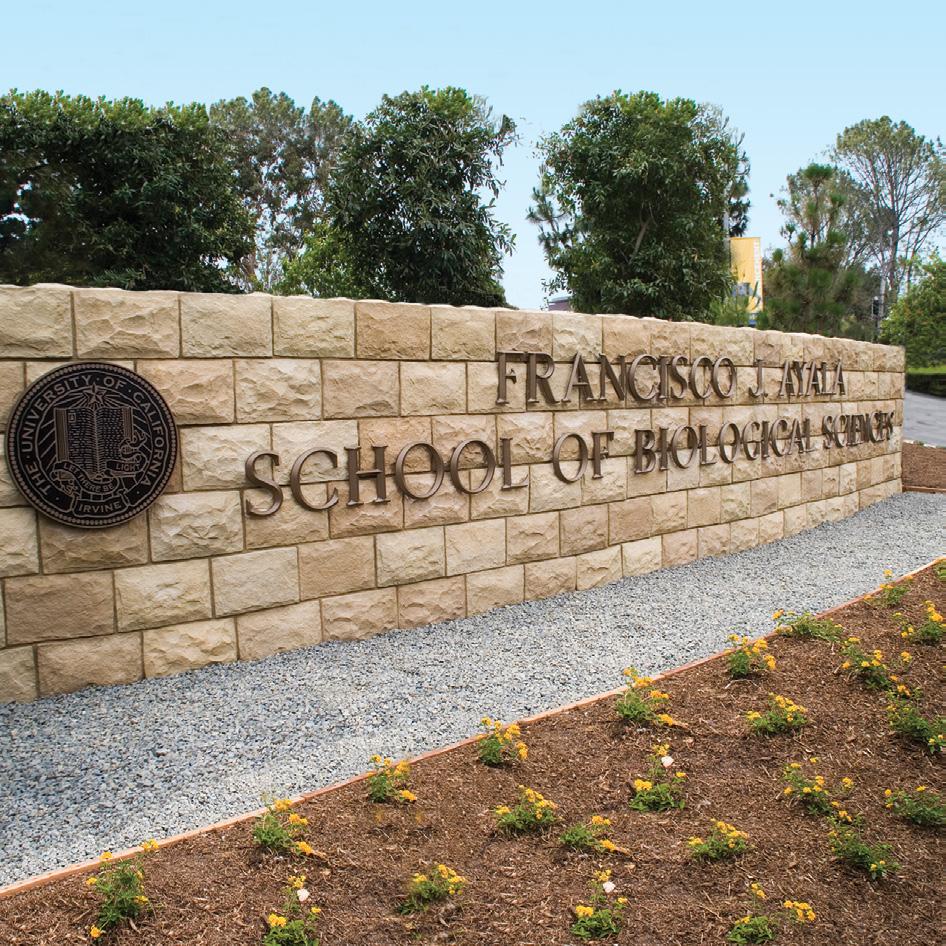
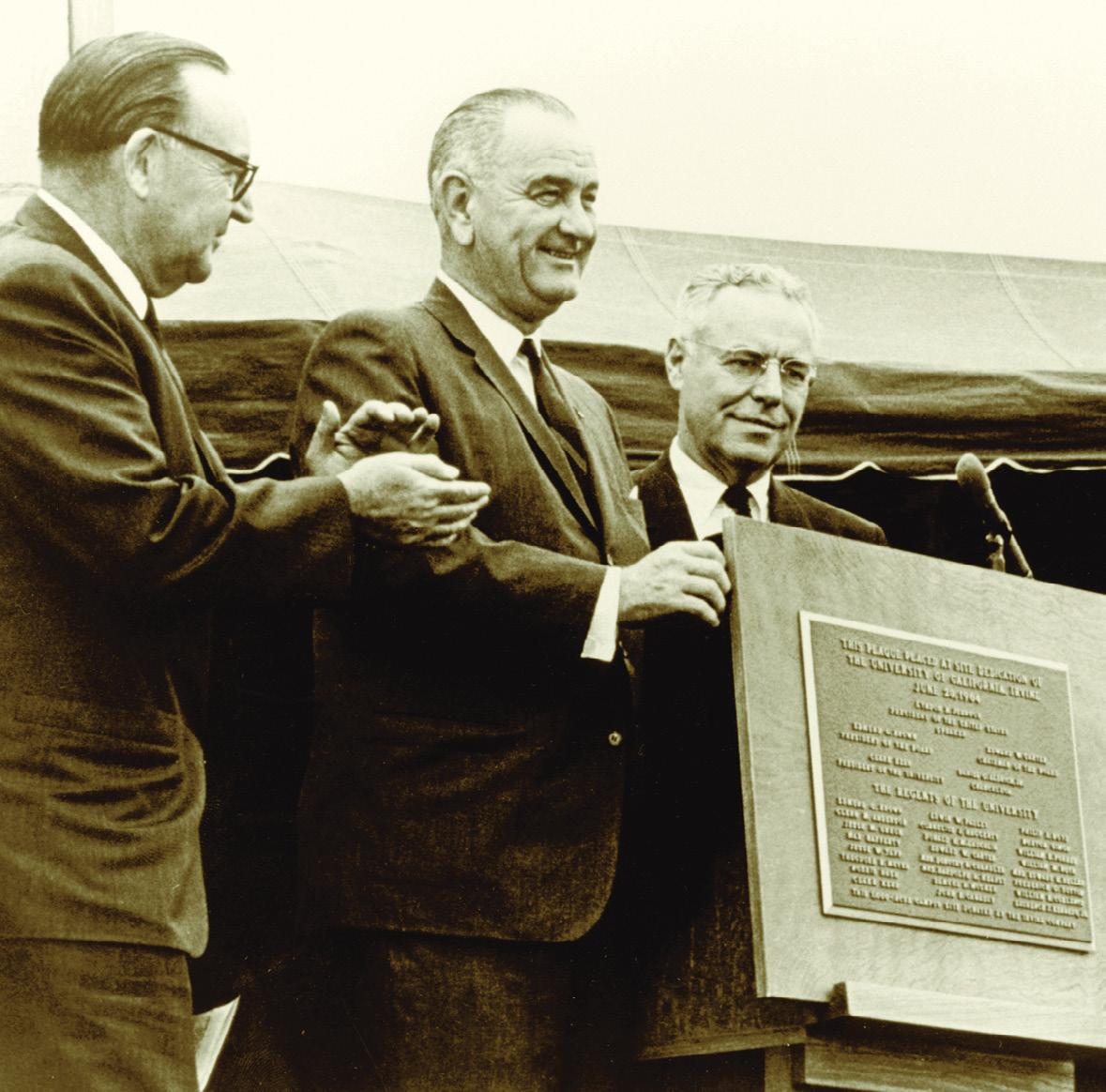

“ I want to show you how badly we need you –both your individual voices and your collective efforts – to give you the chance you seek to change the world and maybe even save it.”
–
President Barack Obama headed a special commencement ceremony for the UCI class of 2014 at Angel Stadium in Anaheim. The President helped kickoff UCI’s 50th anniversary celebration. Since his visit, the university has undergone a year long reflection of its past to help form a clearer picture of its future. President Obama’s words continue to resonate with the leadership, faculty and students of UCI and the Ayala School.
Fifty years ago, UCI opened its doors with the goal of improving society by providing the highest quality education to a diverse student population and to foster innovative discoveries through cutting-edge research. Our commitment to these founding principles has made UCI a preeminent research institution that positively impacts our local, national and global communities. In the Ayala School, our research on Alzheimer’s disease, malaria, cancer, host-pathogen interactions, learning and memory, and stem cells, just to name a few, has had a major impact on these fields. As we journey into the next 50 years, the Ayala School will continue to evolve and reach new levels of innovation and societal impact. We will develop new curricula to cultivate and enrich the learning environment for our ever diversifying student body. We will invest in the academic framework of the School to create opportunities for greater interdisciplinary science.
The public policy governing higher education is different today than when UCI was founded. If the Ayala School is to accomplish all of its goals, we will need strong financial support from all levels of government, the local and national community, and from international sources. Thanks to our distinguished faculty, dedicated staff, and talented students, we are confident that we will meet these goals. Together, we will accelerate our ascendency among globally preeminent research institutions within the life sciences, positioning the Ayala School to serve at the forefront of research institutions seeking to solve the most serious challenges facing our world.



The 2015 commencement ceremony for The Francisco J. Ayala School of Biological Sciences was held on June 14th at the UCI Bren Events Center. This year, 811 degrees were awarded: 36 Doctors of Philosophy, 32 Master of Science, and 743 Bachelor of Science. Five-time Olympic Diving Champion Greg Louganis delivered the commencement keynote address. Mr. Louganis was born and raised in El Cajon, California. During his college years, he transferred to UCI in 1981. While at UCI, Mr. Louganis was a premier athlete, winning two titles at the world championships in 1982. He later graduated with a major in drama and a minor in dance in 1983. After graduating from UCI, Mr. Louganis went on to win four gold medals at the 1984 and 1988 Olympic Games, in addition to the silver medal he won at the 1976 event. Since his time as an Olympic champion, Mr. Louganis has worked frequently with the Human Rights Campaign to defend the civil liberties of the LGBT community.
Mr. Louganis delivered a thoughtful and inspiring address. He spoke extensively about his travels, describing how he has had the opportunity to meet people of different backgrounds, religions, ethnicities, and orientations, and the great life lessons he learned from those experiences. He encouraged the graduates to remain flexible through the life challenges they will face beyond UCI. He even demonstrated his flexibility on stage by performing a hand-stand in his cap and gown.
“For an Olympic athlete, you would think that flexibility means to be able to move and stretch your body to its limitations, yes that’s a part of it, but it’s also what the dictionary says, which is, to be adjustable to change, to adapt to new environments and the willingness to be open minded.”
Mr. Louganis continued to stress the importance of family and friends throughout his speech. He told the students to embrace life’s ups and downs, “Sometimes, I learn that failure is the most inspiring change of all. Some failures come with humility, compassion, and a deeper understanding of our humanity.” His words of encouragement to the graduates were honest and heartfelt, and his story of triumph over adversity was an inspiration.



Enrique J. Lavernia, Ph.D.
Provost and Executive
Vice Chancellor
Dr. Enrique J. Lavernia was appointed as the provost and executive vice chancellor of UCI, effective July 1, 2015. The provost serves as the chief academic and operating officer of the university. Dr. Lavernia had previously served as dean of UC Davis’ College of Engineering, and during his tenure there, the College of Engineering had evolved into one of the nation’s most prestigious engineering schools. He also served as interim provost at UC Davis for two years as the campus transitioned to a new chancellor.
Dr. Lavernia first joined UCI in 1987 as a faculty member in the Department of Mechanical Engineering. He was later appointed to chair the newly formed Department of Chemical Engineering and Materials Science. In 2002, Dr. Lavernia moved to UC Davis to serve as dean for the College of Engineering.
An appointed search committee that consisted of faculty, students, staff and community members reviewed nearly 200 candidates for the provost position. Despite the long list of exceptional candidates, “Enrique had a unique combination of prestigious academic and research accomplishments, professional recognition, and a firsthand understanding of the faculty experience and operations of the University of California,” said Dean LaFerla, chairman of the search committee.

Howard J. Federoff, Ph.D., M.D.
Vice Chancellor for Health Affairs and CEO of the UC Irvine Health System
Dr. Howard J. Federoff was appointed the vice chancellor for health affairs in 2015. In addition to his role as vice chancellor, Dr. Federoff will also serve as the CEO of the UC Irvine Health System. As the vice chancellor for health affairs, Dr. Federoff will supervise the development of UCI Health, which includes providing strategic direction for the UCI Medical Center and guidance on the development of academic programs at the Medical School.
Prior to his appointment as vice chancellor for health affairs, Dr. Federoff served as executive vice president for health sciences and executive dean of the School of Medicine at Georgetown University. While at Georgetown, Dr. Federoff was credited with successfully advancing the educational and research missions of the Medical Center.
“I am quite excited to be joining UCI, which has a highly regarded history of medical care, education and research,” Federoff said. “I plan to bring a fresh perspective to this new position and guide our medical school and healthcare enterprise to new heights.” Dr. Federoff, a leading expert on brain disorders, also holds an appointment in the Department of Neurobiology and Behavior.

James W. Hicks, Ph.D.
Interim Vice Chancellor for Research
Dr. James W. Hicks, professor of Ecology and Evolutionary Biology in the Ayala School, was appointed interim vice chancellor for research. As vice chancellor for research, Dr. Hicks is tasked to oversee the operations of the Office of Research. There are several units within the office of research, including the Office of Research Administration (ORA), University Laboratory Animal Resources (ULAR), and Research Development, all of which function to support the innovative and scholarly research of faculty at the university.
Dr. Hicks joined UCI in 1992. He is a highly successful researcher, having published over 100 peer-reviewed publications, and was elected a Fellow of the American Association for the Advancement of Sciences. Dr. Hicks served in many critical administrative roles at the departmental, school, and campus-wide level, including as the chair of the Institutional Animal Care and Use Committee, and associate vice chancellor for research.
Dr. Howard Gillman was invested as UCI’s sixth chancellor in September 2014 after serving as provost and executive vice chancellor since June 2013, and interim chancellor since July 2014. The investiture ceremony is a tradition at UCI and is held to formally acknowledge a new chancellor. Prior to arriving at UCI, Chancellor Gillman was a professor of political science, history, and law at USC, and served as dean of the USC Dornsife College of Letters, Arts and Sciences.
During the ceremony, Chancellor Gillman outlined his vision for the campus going forward. He pledged to work closely with university deans and faculty to build a preeminent research and educational facility devoted to the convergence of science and engineering. The chancellor believes that by investing in facilities that allow large-scale research on society’s most pressing challenges, UCI will be able to meet a major goal of his, which is to raise the reputation of the university as a sought-after destination for top-flight faculty, students, and extend our global outreach.


A remaining hurdle in the push to eradicate cancer is to understand how cancer cells evade standard therapy. Dr. Scott X. Atwood is a molecular biologist whose research is focused on determining how the signaling events in normal cells are altered to promote cancer. More specifically, Dr. Atwood’s research explores how small molecular tags called “phosphorylations” that control protein behavior are redistributed from normal stem cells to cancer stem cells. Some of the questions Dr. Atwood seeks to answer include how stem cells maintain their identity over time, why do stem cells decide to differentiate into tissue specific cells, and how the process of stem cell differentiation can become altered in cancer? His lab uses cell culture and mouse models of skin development and basal cell carcinoma to understand cell fate decisions over a lifetime. He hopes that his research will shed light on the evolution of drug-resistant cancer and direct the development of the next generation of cancer therapies. Dr. Atwood received his Ph.D. in molecular biology from the University of Oregon where he studied how cell polarity influenced cell fate in fly neural stem cells. He conducted his postdoctoral studies at Stanford University where he investigated signaling pathways controlling basal cell carcinoma and the evolution of drug resistance.

Michael T. Green, Ph.D. Molecular Biology and Biochemistry
Dr. Michael T. Green is a chemist who studies proteins that are important for the synthesis of compounds essential for human physiology. Dr. Green is particularly interested in a class of enzymatic proteins called cytochromes P450. These particular enzymes belong to a group of proteins that play critical roles in steroid synthesis, and are known to metabolize drugs used to treat many human diseases, including cancer. His interest in P450s stems not only from their biological importance but also from a desire to harness their synthetic potential: P450s can catalyze reactions that are critical to the synthesis of potential therapeutics. Dr. Green seeks to understand the factors that govern this reactivity in P450s. His research will shed light on an important protein in human physiology, and in the synthesis of organic molecules for therapeutic use. For his work in this area, Dr. Green was recently elected as a Fellow of the American Association for the Advancement of Science. Before arriving at UCI, Dr. Green received his Ph.D. in chemistry from the University of Chicago. Upon the successful completion of his Ph.D., he went on to work at the California Institute of Technology as a postdoctoral fellow.

Addiction is a chronic relapsing brain disorder, and despite its huge economic and social costs there are few effective therapies for helping people stay off drugs when they choose to quit. Dr. Stephen V. Mahler seeks to understand how the brain processes desire and craving for natural and drug rewards, and how addictive drugs hijack and alter normally underlying healthier pleasures.
His lab employs modern neuroscience tools in conjunction with traditional anatomical, histological, and behavioral techniques to dissect the brain’s neural circuits. One particularly exciting technology routinely employed by Dr. Mahler’s lab involves a gene therapy approach to insert designer synthetic receptors (DREADDs) into selected neuronal populations in the brain. This technology allows unprecedented control of selected brain circuits before and after development of addiction, allowing his group to characterize the currently unknown pathways of normal versus compulsive motivation. DREADDs also hold great promise as a next-generation approach to treating numerous psychiatric disorders in humans including addiction. The very tools currently used by the Mahler lab are being tested in clinical trials with promising initial safety and efficacy results. If DREADDs prove safe and effective in humans (as they have in rodents and primates), they will likely transform psychiatry by specifically targeting “broken” circuits implicated in psychiatric diseases, without producing unwanted off-target effects characteristic of conventional pharmaceuticals. Dr. Mahler received his Ph.D. from the University of Michigan, and his postdoctoral training at the Medical University of South Carolina.

Dr. Zeba B. Wunderlich is a biophysicist who is interested in understanding how mutations in cellular DNA can affect gene expression. Improper control of gene expression is implicated in many human diseases from cancer to neurological disorders. However, mutations can also contribute to the emergence of new species over the course of evolution. Dr. Wunderlich uses fruit fly species as a model system and utilizes her broad range of expertise in computational biology, genetics, and microscopy to study this fundamental question in biology. The ultimate goal of her research program is to be able to “read” the instructions encoded in DNA, which is key to driving the expression of genes. Being able to read these instructions will allow researchers to understand why certain mutations in a person’s DNA cause specific disease states, whereas others do not. Dr. Wunderlich hopes that her research will lead to the earlier detection of individuals who may be susceptible to genetically linked diseases. Dr. Wunderlich received her Ph.D. in biophysics from Harvard University, and completed her postdoctoral fellowship in the Systems Biology Department at Harvard Medical School.
2015 Hellman Fellow
Assistant Professor Yilin Hu, Ph.D.
Molecular Biology and Biochemistry
Avenir Award, National Institute on Drug Abuse
Assistant Professor Christie Fowler, Ph.D.
Neurobiology and Behavior
2015 Ayala School Golden Apple Award
Assistant Professor Kim Green, Ph.D.
Neurobiology and Behavior

2015 Clinical Translational Scientist Career Achievement Award
Professor Carl W. Cotman, Ph.D. Neurobiology and Behavior
Transatlantic Networks of Excellence Program Grant, Leducq Fondation
Professor Ron D. Frostig, Ph.D.
Neurobiology and Behavior

Program Grant, The International Human Frontier Science Program Organization
Professor Steven P. Gross, Ph.D.
Developmental and Cell Biology
Multicampus Research Programs and Initiatives Grant
Distinguished Professor
Bruce L. McNaughton, Ph.D.
Neurobiology and Behavior
UC Faculty Climate Action Champion Award
Associate Professor Steve D. Allison, Ph.D.
Ecology and Evolutionary Biology
Visiting Erskine Fellowship
University of Canterbury, New Zealand
Associate Professor Matt Bracken, Ph.D.
Ecology and Evolutionary Biology
Tobis Medal
University and Bren Professor
Francisco J. Ayala, Ph.D.
Ecology and Evolutionary Biology
Multidisciplinary University Research Initiative
Assistant Professor Manny Azizi, Ph.D.
Ecology and Evolutionary Biology
Clinical Neuroscience Research Grant, Dana Foundation
Professor Craig E. L. Stark, Ph.D.
Neurobiology and Behavior
UCI Distinguished Professor Appointment
Professor Steven A. Frank, Ph.D.
Ecology and Evolutionary Biology
Orange County Register’s
Annual List of the 100 Most Influential People
Distinguished Professor
Anthony A. James, Ph.D.
Molecular Biology and Biochemistry
Society of Leukocyte Biology Honorary Life Member Award
Professor Andrea J. Tenner, Ph.D.
Molecular Biology and Biochemistry



Anthony A. James (B.S. ’73, Ph.D. ’79, Biological Sciences), Distinguished Professor of Molecular Biology and Biochemistry and Microbiology and Molecular Genetics, has been recognized as one of the 100 most influential people in Orange County by the Orange County Register.
After working as both a postdoctoral researcher and assistant professor at Harvard Medical School, Professor James was recruited back to UCI in 1989 to the Department of Molecular Biology and Biochemistry as an assistant professor.
Professor James sits at the top of his research field and has contributed profoundly to the advancement of entomology, the branch of biology that studies insects. He recently announced the generation of a revolutionary malaria-resistant mosquito. The generation of this groundbreaking tool is the culmination of over 20 years of research. To create this new breed of mosquito, Professor James and colleagues utilized an innovation in germ-line modification called the CRISPR method.
This new method allows for the introduction of a new DNA element containing anti-malaria antibody genes into Anopheles stephensi mosquitoes. Along with the anti-malaria antibody genes, a second set of reporter genes is added to ensure that the anti-malaria antibody genes reach the desired site. If the procedure is successful, the reporter gene causes the mosquitoes to be born with eyes that show red fluorescence.
The successful introduction of this new breed of malaria-resistant mosquito has the potential to save millions from this devastating disease. There are an estimated 3.4 billion people at risk for malaria, primarily in Africa. In 2012, there were an estimated 207 million cases of malaria with an estimated 627,000 deaths.
Professor James’ development of malaria-resistant mosquitoes can also be adapted to fight emerging vector-borne diseases such as Zika virus.
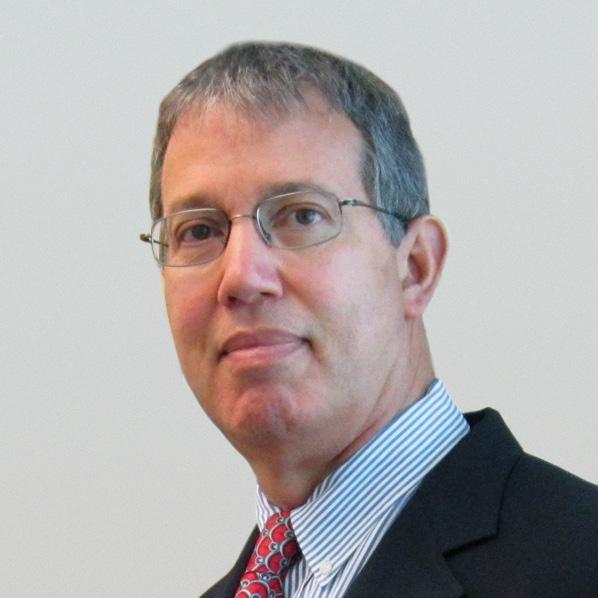

Many of society’s most daunting challenges, ranging from ecosystem disruption to personalized health and wellness, will have a biologicalbased solution. Innovation is the lifeblood of change and drives the advancement of better technologies, and improved medicines. Consequently, innovation in the biological sciences has the potential to contribute significantly to the economic development of California and the United States. Here at the Ayala School, we strive to encourage an environment of innovation, which is reflected in the high quality research produced by our faculty. Our faculty have made advances in many areas of the life sciences over the past year, and with the proper support, the Ayala School is poised to continue to contribute significantly to the development of solutions to overcome the challenges of tomorrow.
UC Irvine’s Institute for Memory Impairments and Neurological Disorders (UCI MIND) has received a five-year, $11 million grant from the National Institute on Aging to renew its status as one of only 29 Alzheimer’s Disease Research Centers (ADRC) in the nation – and the only one in Orange County.
The prestigious award, which supports a major component of UCI MIND, will allow the center to continue its highly impactful clinical and basic research programs, as well as community and caregiver education programs.
“With its ADRC designation, UCI MIND is part of an elite network of researchers with a broad scope of expertise, spanning many different disciplines,” said Frank LaFerla, Ph.D., the ADRC director. “This opportunity for collaboration allows researchers around the country to share cutting-edge ideas and research results.”
The UCI ADRC established the nation’s first induced pluripotent stem cell (iPS) core for Alzheimer’s disease.
Involving more than 100 investigators, the ADRC has directed its research efforts at discovering the cellular, molecular and clinical risk factors that trigger neuronal dysfunction and neuropathological changes in the aging brain that can result in Alzheimer’s disease or other forms of dementia.
In particular, the ADRC studies three distinct groups: people with Down syndrome and Alzheimer’s disease, those with mild cognitive problems at risk for dementia, and nonagenarian subjects in the 90+ Study.

The center’s multidisciplinary team takes a comprehensive approach to research and care through mandated core components: clinical evaluation, neuropathology, community outreach and education, and data management and statistics.
UCI’s ADRC hosts three major research projects. One focuses on state-of-the-art, high-resolution neuroimaging of older adults with and without mild cognitive impairment to test a neurocognitive model of age-related memory deficits. Another project seeks to understand the molecular mechanisms associated with the Down syndrome brain. And the third investigates the long-term benefit of neural stem cell transplantation as a potential Alzheimer’s treatment.
As part of that effort, Dr. LaFerla and colleague Mathew Blurton-Jones, Ph.D., established the nation’s first Core facility to develop induced pluripotent stem cells to facilitate Alzheimer’s disease research.
“ADRC activities are at the heart of our mission with UCI MIND,” said Andrea Tenner, Ph.D., professor of Molecular Biology and Biochemistry and UCI MIND director. “By fostering multidisciplinary basic, clinical and behavioral research in Alzheimer’s disease and translating these findings into practice, we plan to make a real difference in the lives of the millions of afflicted Americans.”
To learn more about UCI’s ADRC or participate in a clinical evaluation, call 949-824-2382 or go to mind.uci.edu



Microglia are the immune cells of the brain, and function to detect and respond to pathogens. These important cells are found throughout the brain, forming a web of processes that vigilantly survey the local environment, protecting our most precious organ from infection. However, despite the protective roles that these cells can play, they also have a darker side, and their dysfunction is implicated in almost every brain disorder. As an immune cell, microglia possess the capacity to produce and secrete inflammatory signals and modulating processes that are capable of killing pathogens. In Alzheimer’s disease the brain becomes littered with plaques – the microglia respond to these plaques in an attempt to destroy and clear them from the brain. However, they are unable to do so, and instead remain in an “activated” or agitated state for the duration of the disease, all the time causing a massive inflammatory response that contributes to the disease progression. Similar reactions are seen in other neurodegenerative diseases, as well as after injuries. Human studies have shown inflammatory responses coordinated by microglia persist 17 years after a traumatic brain injury! Thus, understanding microglial biology and finding ways to control them offers hope for many CNS disorders.

Dr. Kim Green, assistant professor in the Department of Neurobiology and Behavior, and his team discovered that all microglia in the adult brain were dependent on a single signaling pathway for their survival – the colony stimulating factor 1 receptor. They found that pharmacological inhibition of this receptor, caused the vast majority of microglia to undergo cell death, leaving the brain devoid of these cells. They discovered that they could keep microglia away for as long as they continued to block the receptor, even for many months. This is a remarkable finding that has now allowed scientists around the world to understand the roles that these cells play in health and disease in a way that has not been possible before.
Dr. Green has been using this approach to understand the importance of microglia to Alzheimer’s disease, and finds that they drive many aspects of the disease, including cognitive deficits, and synaptic and neuronal loss.

“These findings will help shape future therapeutic directions, and highlight the important and central role that these cells play in the disease process.”
– Dr. Kim Green

The brain has the remarkable capacity to rewire itself. This ability, known as “brain plasticity,” is more robust in juvenile than in adult brains. In juveniles, the plasticity of neuronal connections mediates the sculpting of a wide range of behaviors, from visual perception to language acquisition and social recognition. Manipulations of inhibitory GABAergic neurons have been shown to alter the timing and extent of brain plasticity. The mechanism by which this occurs, however, remains poorly understood.

Dr. Sunil Gandhi, assistant professor of Neurobiology and Behavior, is working to gain insight into the mechanisms governing plasticity, focusing on the visual center of the cerebral cortex. Dr. Gandhi and colleagues have transplanted GABAergic neurons from embryonic mice into the visual cortex of adult mice. Much like older muscles lose their youthful flexibility, older brains lose plasticity and recover poorly from injury or deprivation.
The transplanted neurons contain GABA, the chief inhibitory neurotransmitter that shapes the processing of information in the brain. It was hypothesized that the transplanted cells from juvenile mice could reactivate juvenile brain plasticity in the recipient mice. The transplanted GABAergic neurons created a new period of plasticity after the normal juvenile
period had ended and reversed blindness in visually impaired adult mice. The transplanted GABAergic neurons created an environment similar to that of a juvenile brain which allowed for a vigorous rewiring of the adult brain. In a sense, the brain region that received the GABAergic neurons became young again. The findings were published in the May 20th issue of Neuron.
These results raise hope that GABAergic neuron transplantation might have future clinical applications, such as to enhance retraining of the adult brain after injury. Furthermore, this work sparks new questions as to how these GABAergic neurons activate plasticity, the answers to which might lead to therapies for developmental brain disorders such as autism and schizophrenia.
Dr. Gandhi’s work is supported by the NIH Director’s High-Risk High-Reward Program, a Searle Scholars Award, the Klingenstein-Simons Foundation and the Whitehall Foundation.
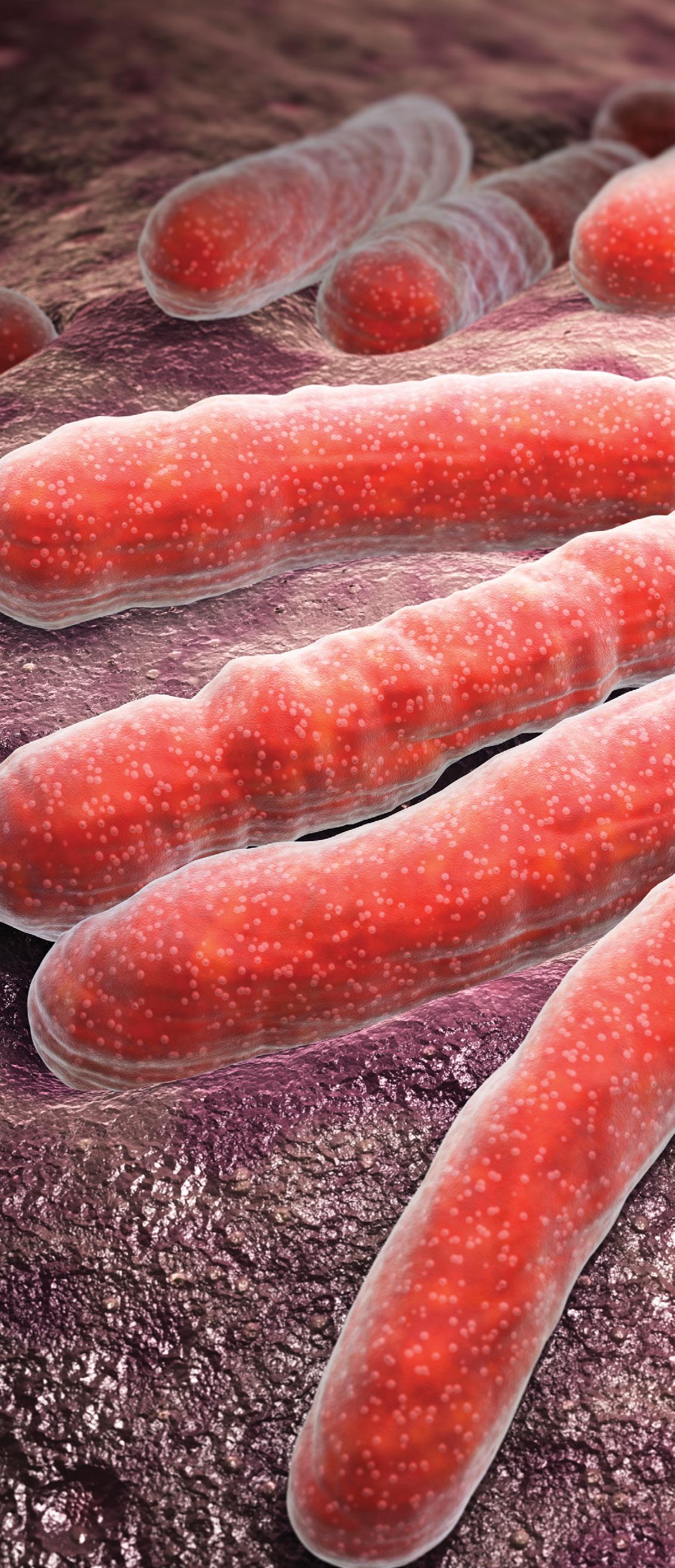

Mycobacterium tuberculosis, the bacterial pathogen that causes tuberculosis (TB), was responsible for 1.5 million deaths in 2013. Around 1/3 of the world’s population is infected with TB, though not all infected succumb to the disease. Tuberculosis is a curable disease, but due to the waning efficacy of existing drug regimens, new tools to prevent and treat TB are urgently needed. The World Health Organization along with Doctors Without Borders have urged governments and drug companies to work together to develop new treatment strategies to combat this urgent medical challenge.
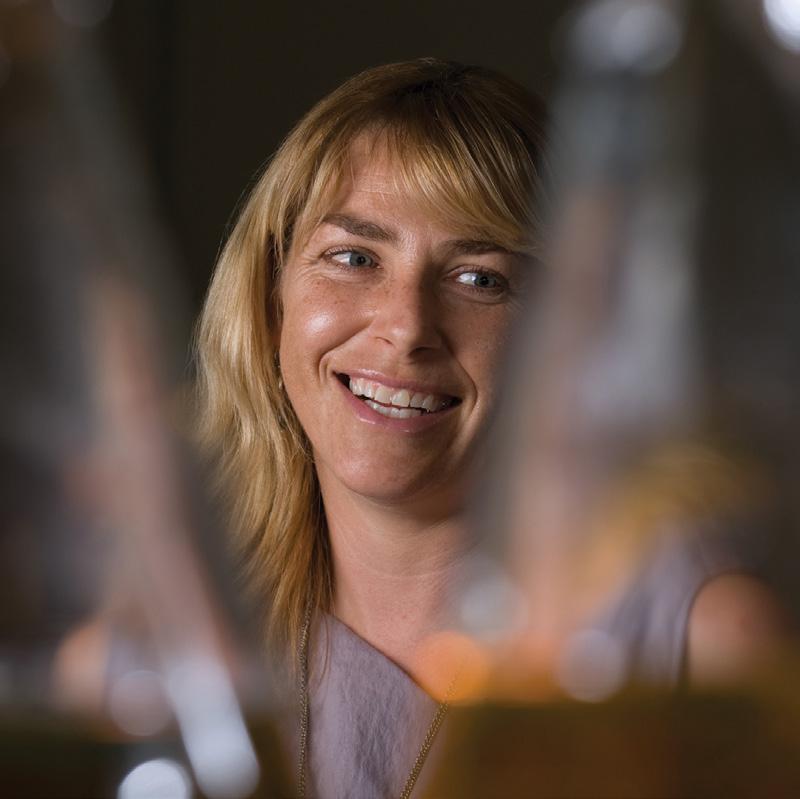
Dr. Celia W. Goulding, professor of Molecular Biology and Biochemistry, has been working on new treatments for TB. To effectively design a potential drug target for a disease like TB, it is necessary to identify a target that is vital to the function of the pathogen. As such, Professor Goulding studies a class of proteins, the MmpL family of proteins, due to their role in the transport of essential molecules in and out of TB bacterium.
Recent work in Professor Goulding’s laboratory has focused on two similar protein domains from MmpL proteins. Based on the prediction of their outside location, Professor Goulding’s group was able to determine the regions of the domains that associate with one another using a compound that was able to link both domains together. Furthermore, the three dimensional structure of one of the domains was solved, which allowed the group to build a computer models of an MmpL protein with its domains. The models created by Professor Goulding provide the first structural glimpse of any MmpL proteins and importantly, reveal which portions of the protein are critical for its function.
More significantly, the broader research community will be able to leverage the new structural and functional information, setting the stage for the development of an entirely new class of anti-TB therapeutics to be developed for clinical use.
With elderly individuals at increased risk for cognitive impairment, Dr. Carl Cotman’s primary goal is to discover ways to prevent age-related cognitive decline and improve cognitive function for those impaired. Dr. Cotman is a professor in the Departments of Neurobiology and Behavior and Neurology and a pioneer in the field of aging research.

Professor Cotman has conducted extensive research on the impact of exercise on cognitive function. Exercise can have a major impact on the brain, and in a recent analysis of modifiable risk factors for slowing the rate of cognitive decline, he concluded that in the U.S., physical inactivity is the greatest modifiable risk factor. Professor Cotman’s group discovered that exercise can increase the protein brain-derived neurotrophic factor (BDNF), a protein pivotal for learning and memory, and that BDNF upregulation is a key mechanism driving the cognitive benefits of exercise.
Practical questions frequently asked are how much exercise and how frequently should you exercise to obtain beneficial effects on the brain? Professor Cotman has worked to address these questions in animal models, and discovered that exercise activates mechanisms to create a “molecular memory” for BDNF activation, essentially storing the exercise-activated gene expression patterns and making them readily accessible for rapid reactivation, even after exercise has ended.
Moving beyond the successes of the lab is an ongoing goal for Professor Cotman. In parallel to his basic science research using animal models, he is co-directing a government-funded national clinical trial at 14 Alzheimer’s Disease Centers across the country to evaluate the benefits of 1 year of aerobic versus nonaerobic exercise for 300 people with mild cognitive impairment (MCI). This ongoing study is the largest exercise clinical trial for those with MCI and will involve multiple measures and be carried out in the community at local YMCA sites to facilitate its translatability.

We are at a frontier in understanding how microbial community colonization affects human health. Dr. Katrine Whiteson, an assistant professor in the Department of Molecular Biology and Biochemistry, seeks to identify and understand the mechanisms by which human-associated microbes influence and indicate health and disease.
Professor Katrine Whiteson uses genetic analyses, metabolite profiling, microbiology and ecological statistics to answer questions about how microbes and viruses affect human health. Professor Whiteson was part of a team of researchers at the Genomic Research Lab at the University of Geneva Hospitals at the beginning of the Human Microbiome Project. Her work was focused on the oral microbial communities of healthy Europeans and malnourished children in Africa. Since arriving at UCI, it has been a major goal of the Whiteson lab to answer basic questions about the microbes and viruses inhabiting various niches of the human body, and how they influence and indicate human health.

Most of the genetic differences between people are encoded by the unique microbial community that establishes during childhood and then persists throughout life. About half of the molecules present in the human body are modified or modulated by our resident microbes, with many interesting consequences. Professor Whiteson’s group was recently funded by the Gilead Foundation to pursue the potential for bacterial fermentation products to act as indicators of lung infection. Current clinical microbiology labs attempt to grow the microbes that may be responsible for infection, however, many long-term infections, such as those established in the lungs of cystic fibrosis patients, are composed of microbes that last for decades. The identity of the microbes may not change, but their activity might, which is why using metabolites such as fermentation products as indicators of the living conditions the microbes are experiencing could be important.
Professor Whiteson hopes for a future where all people are colonized by a healthy microbial community, which could reduce the incidence of allergies, auto-immune disease and other conditions that are becoming more prevalent. In addition, a future where we have more targeted antibiotics, so that we can selectively remove the microbes that are causing trouble without obliterating the entire community, is an important goal for our generation.

One of the grand challenges facing society in the 21st century is climate change. Climate change is predicted to have disastrous effects on agriculture and weather patterns, and lead to massive changes in species distribution patterns. While plenty of attention is paid to the direct effect climate change will have on humanity, less attention is paid to the many indirect effects.
As group leader of an international collaboration founded by a grant from the National Center for Ecological Analysis and Synthesis and continuing with recent funding from the Albert and Elaine Borchard Foundation, Dr. Sorte is working to discover how climate change impacts invasive species. A substantial consequence to the overall well-being of many species in the US, including humans, is the loss of biodiversity within our ecosystem. Two of the primary drivers of biodiversity loss worldwide are climate change and invasive species. However, the degree to which increased temperatures could increase invasion impacts, leading to an accelerated loss in biodiversity, is largely unknown.

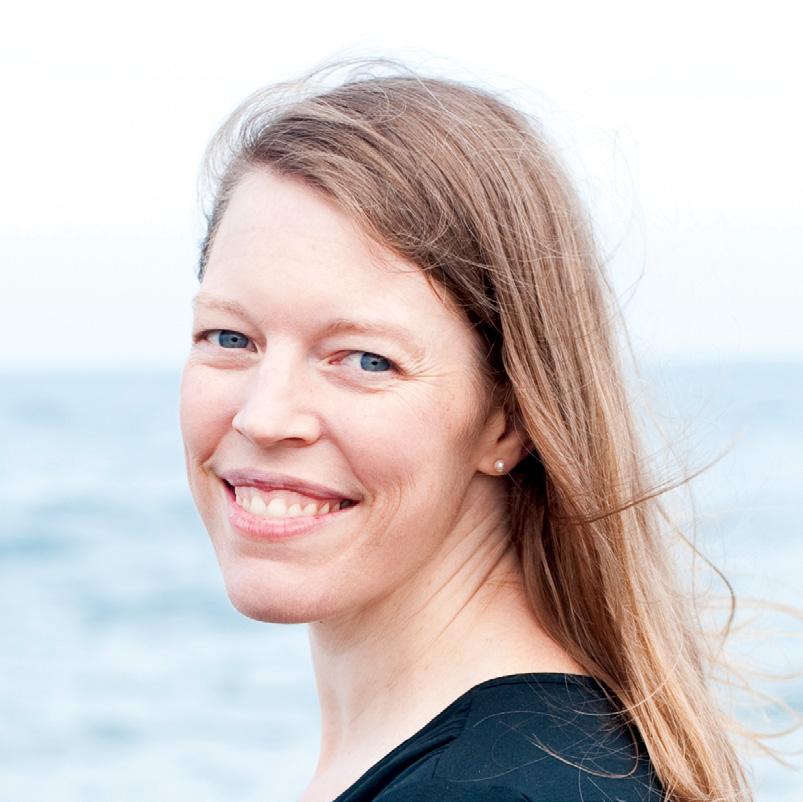

Dr. Sorte and her team conducted the first broad-scale assessment of over 13,000 native and non-native plant distributions and used a modeling approach to identify the range of environments that these species currently inhabit and their anticipated future spread. Their models suggested that non-native plant species are already more widespread than native plant species in the US. Furthermore, non-natives currently inhabit only about 50% of their expected range, indicating that they still have plenty of space to invade.
Dr. Sorte has been concerned about the impact of climate change since graduate school, as her Ph.D. dissertation research addressed the hypothesis that climate change will favor non-native species. The work coming out of her group has important conservation implications, including prioritizing invasive species for removal and identifying future pests before they invade.
In addition to her work synthesizing invasion patterns across ecosystems, Professor
experimental
Time for some

Autism spectrum disorder is a range of complex neurodevelopmental disorders that affects up to 2% of children, with the current socio-economic burden estimated at over $250 billion per year in the USA alone. There is currently no cure or specific treatment for this disorder and drug development is problematic as there is no reliable biomarker for this disorder.
Professor Ian Parker in the Department of Neurobiology and Behavior, along with Professor Jay Gargus (Director for the Center for Autism Research and Translation (CART)) have been investigating alterations in cell signaling pathways in individuals with autism. They found that patients with three very different genetic forms of autism (Fragile X syndrome, Tuberous Sclerosis 1 and 2) all display greatly diminished activities of a calcium channel located within the cell in an organelle called the endoplasmic reticulum. Defects in this calcium channel, the inositol trisphosphate receptor (IP3R), may cause some of the cognitive impairments associated with autism.
The IP3R controls the release of calcium in cells. In the brain, calcium is used to communicate information within and between brain cells, and activates a host of other cell functions, including regulating learning and memory.
Many of the genes that can cause autism have been found to be members of the same signaling pathways. The CART team found convergence in these three genetically different forms of autism at the IP3R; they propose that proper functioning of this channel and its signaling pathway is critical for regulating normal brain function and represents a key ‘convergence hub’ in the pathogenesis of diverse forms of autism.
To see if IP3R function is altered across the ASD spectrum, the researchers are now collaborating with clinicians at the Center for Autism & Neurodevelopmental Disorders – with which the CART is integrated – to examine children with and without autism for the same signaling abnormalities.
Their study appears online in Translational Psychiatry, a Nature publication.
Rest and relaxation, we can all probably agree, are beautiful things. But in the long run, it might be repair and regeneration that are more beneficial.
It has long been known that some animals can repair major injuries. Some salamanders can replace an entire limb if it is lost, even frogs and mice have some ability to replace parts of their bodies. Although it isn’t as immediately apparent, humans have the same ability to repair or replace large areas of our bodies after damage or loss. The ancient Greeks knew that our liver could undergo major damage and completely regenerate itself. We all likely have experienced situations in which our body repaired itself. Loss of blood isn’t irreparable, the stem cells in our bone marrow replace the lost cells in short order. Similarly, skin damaged by the sun is also replaced in a few days, again through the action of stem cells.
These so-called tissue-specific stem cells are amazing but have a limited ability to repair. Stem cells in the skin repair skin, while stem cells in the bone marrow replace blood cells. The development of pluripotent stem cells provides the scientific community with cells capable of replacing every cell type present in the human body.
Pluripotent stem cells can be obtained from embryos or by reprogramming skin cells into induced pluripotent stem cells. In effect, we now have a repair kit for the human body. The use of pluripotent stem cells promises to herald a revolution in the way that human diseases and injuries are treated. But if such cells are to be used successfully, there are still many questions to be addressed. Fortunately, scientists, like Professor Peter Donovan from the Departments of Developmental and Cell Biology and Biological Chemistry, are well placed to be at the forefront of stem cell biology. Our scientists are studying: how pluripotent stem cells can be maintained efficiently in the lab, how they can be coaxed into making other specialized cells, how tissue-specific stem cells are formed in early development, and how tissuespecific stem cells play a role in everyday physiological responses such as smell. Using methods from engineering and math, other UCI scientists are developing mathematical models to predict how stem cells regenerate tissues in our bodies and how stem cells in cancer could be best eradicated.

If the stem cell revolution is to be successful, it will likely require the skills of many scientists working in disparate fields –chemists, mathematicians, engineers, embryologists, molecular biologists, clinicians, etc. The long history of scientists in the Ayala School in the fields of developmental biology, regenerative biology and stem cells places them in an enviable position to play key roles in the progress of this burgeoning field. And it’s already clear that colleagues in different schools on the campus will be willing partners in this exciting enterprise.
A hundred years ago the average lifespan of an American was about 55. Now it is in the high 70s. As our lifespan increases, wouldn’t it be nice to do so in a good way? So 75 really is the new 55. Think about it, then take a nap!
UC Irvine is investing significant resources to provide its faculty with the most advanced research instrumentation. Among those, Transmission Electron Microscopy (TEM), has the ability to usher in a new wave of innovation and advances. The TEM setup will be part of the Irvine Materials Research Institute (IMRI). The IMRI was established to serve as an interdisciplinary and cross-industry nexus for the physical sciences to enable advances in fundamental research.
Transmission electron microscopy will provide the most powerful technique available for visualizing the structure of matter at the millimeter to the subatomic length scale. This means that scientists will be able to analyze molecules of interest at lengths that are critical for its functional properties. The significance of TEM to biology is comparable to the impact that the Hubble Space Telescope had on astronomy. The Hubble’s advanced systems enabled it to see farther and with greater clarity than any previous telescope, which allowed it to produce breathtaking images and insights into the universe. TEM will allow our scientists to produce breakthroughs in areas like disorders of the brain and cancer, and lead to a better understanding of structure/function relationships.


Twenty thousand genes – the approximate size of the human genome – may seem like a big number, but it pales by comparison to all the chemical processes our cells control, the patterns and structures in our tissues and organs, the feats of physical prowess that we can perform, and the ideas and memories we can have.
The young field of Systems Biology aims to bridge the gap between genes and biological performance by making sense of the connections or interactions among genes and their products.
Systems Biologists focus both on mapping out such connections – a daunting task given the enormous number of ways in which thousands of elements can be networked together – and on understanding the rules that govern how complex networks do difficult jobs – whether digesting food, fighting disease, learning to read, or running a marathon. To accomplish this, Systems Biologists borrow heavily from disciplines outside of biology – computer science and physics for insights into how to make sense out of biological “big data” – and mathematics and engineering to develop models and simulations that explain how complex behaviors emerge.

Out of this interdisciplinary melting pot have come new insights into the development of tissues and organs, the genetics of disease, the actions of drugs, and the trajectories of evolution. One area of great promise is personalized medicine, which seeks to replace medical decision-making based on the average behaviors of people in general, with predictions based upon the genetic makeup and network parameters of each individual. Another is synthetic biology, which tests for gaps in our understanding, by building novel biological circuits in the laboratory, and seeing whether they can perform the tasks we think they should.
At UCI, the home of Systems Biology research and education is the Center for Complex Biological Systems (CCBS), directed by Ayala School Professor Arthur Lander (Donald Bren Professor of Developmental and Cell Biology), which focuses on forming interdisciplinary teams of investigators to tackle unsolved biological problems. Systems Biology research in the Ayala School has so far led to models that have suggested novel cancer therapies, discovered principles that explain how organs grow to precise sizes, mapped interactions among genes as they change over time when cells grow and differentiate, and produced novel hypotheses about how common birth defects arise. These and other activities have helped establish UCI as one of the leading centers for Systems Biology in the nation.
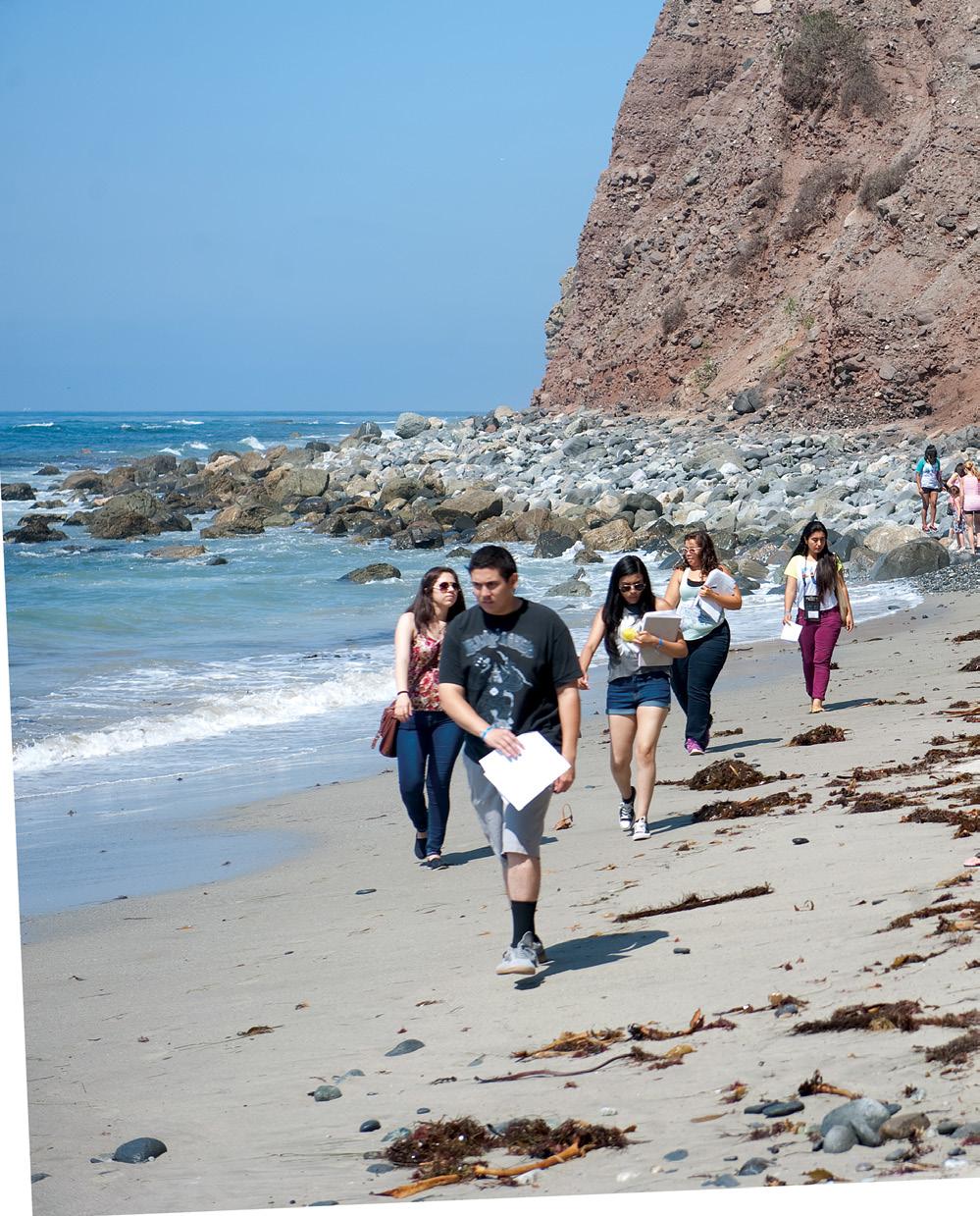


UCI OCEANS is working to promote urban-ocean research at UCI by leveraging and fortifying the strengths of existing faculty and students through collaborative efforts. This new academic initiative includes faculty from the Schools of Biological Sciences, Physical Sciences, Engineering, Social Science, Social Ecology, Art, Law, and Education. The initiative offers a fresh perspective on ocean research and education by embracing a vision and approach that span the sciences, engineering, human and societal decisions, new artistic impressions of complex ideas, education, and governance in local to global institutions. Thus, the initiative is distinct from ‘traditional’ marine research.
In addition to building a vibrant ocean research community on campus, UCI OCEANS is actively engaged in developing strong partnerships with local community stakeholders. In 2014, UCI OCEANS held its inaugural conference at the Beckman Center of the National Academies of Sciences and Engineering for 200 people associated with UCI, local organizations and governments. California Coastal Tribes, and the public to discuss how to ‘Build Partnerships for Ocean Health in Southern California.’ The meeting was a tremendous success. UCI OCEANS will host another conference in the spring of 2016 with a focus on the causes and consequences of El Niño events. Through the initiative, UCI OCEANS also became a formal member of the ‘Orange County Marine Protected Area Council’ and aims to be an active partner in developing and implementing solutions for Orange County coastal ocean health.
From the Ayala School Department of Ecology and Evolutionary Biology, the faculty members are Drs. Adam Martiny (Director), Matthew Bracken, Cascade Sorte, Donovan German, Jennifer Martiny, Nancy Aguilar-Roca, and Steven Allison. UCI OCEANS is open to all interested students and faculty.



Recognizing the danger to the health and well-being of hundreds of thousands of Californians, the Ayala School of Biological Sciences and the Provost’s office founded the UC Irvine Salton Sea Initiative in 2013. Under the direction of Dr. Timothy Bradley, professor of Ecology and Evolutionary Biology, the Salton Sea Initiative seeks to harness the university’s research, teaching, and service resources to address challenges facing the Salton Sea region.
The Salton Sea, the largest inland body of water in California, is facing an environmental and economic disaster. The Sea is drying up, causing its salinity to increase and volume to decrease. As the Sea shrinks, wind blowing across many square miles of dried shoreline raises clouds of toxic dust that threatens the health of hundreds of thousands of Californians. The increasing salinity is killing off fish, threatening the food supply of dozens of species of birds. It is certain that the State of California and the federal government will spend billions of dollars in the next 20 years either on mitigating the public health, environmental, and sustainability challenges at the Sea, or in dealing with the disaster that will result from government inaction.
The UCI Salton Sea Initiative includes more than twenty faculty members and their students, offering expertise in engineering, biology, public health, economics, real estate, regional planning, history, and law. Current research topics being pursued include desalination, biological remediation, nutrient removal, public health issues, land use, regional planning, and water allocation.
In this work, rather than advocate for any one particular path forward, we seek to use our campus strengths to provide technical assistance through our research expertise. UCI has hosted four international symposia attracting experts to address issues of regional water management, climate change, salt lake conservation and wildlife management. We have also worked with schools in the Salton Sea area, providing curriculum enhancement in the sciences, teaching at science camps, and by leading field trips for high school and university students. The Initiative also organized the first science fairs ever offered in the Borrego Springs School District.
Professor Bradley has testified twice before the Little Hoover Commission and at State legislative hearings on approaches that can protect the public health, enhance wildlife, and restore the economic well-being of the Imperial and Coachella valleys.
We recognize our role as participating in an ongoing process of knowledge production and community engagement in addressing this set of public problems. We are working with decision-makers, communities, industries, natural resource managers and other relevant stakeholders to meet the needs of the State and its citizens.


Our ongoing drought in California has been a challenge to all – from those of us living in the urban environments surrounding UCI, to the inhabitants of wildlands on the other side of the urban-wildland interface. For wildlife, the reduced productivity in our natural areas has meant a reduction in the abundance of granivores and herbivores that form the base of the food chain, so meso and large predators have experienced stress as well. For us, the drought has provided an opportunity to break with historic habits and attitudes about water use, and help us re-train ourselves and our expectations. UCI’s response both as an institution and as an enlightened culture has been extraordinary, from individuals like Dr. Peter A. Bowler, Ecology and Evolutionary Biology, and the entire UCI community from faculty, students and staff to our Facilities Management leaders, food service providers, and many more.

UCI is a leader in transforming our views from a stop-gap, Band-Aid, and temporary/as needed approach to a longer-term permanent solution that involves adjusting our expectations of cities and institutions, personal and home habitat lifestyles. Least Impact Development and Leadership in Energy and Environmental Design building practices and using drought resistant native plants in xeriscape settings as opposed to turf has saved both water and money for the campus.
The drought has also fostered many productive collaborations between biologists, social ecologists, and civil engineers. The UCI Water Initiative and UCI Partnerships for International Research and Education groups have been instrumental in understanding the drought. These collaborations have created an opportunity for us to learn from the ways Australia has responded to its Millennium Drought through policy implementation –and how we can benefit in our approach from their experience.

The drought has had a strong impact upon teaching and conducting research in our living laboratory settings. In the UC Natural Reserve System’s San Joaquin Marsh, it has been the driest year since the Reserve was established in 1970. For the first time since their creation in 1999, there is water present in only one of our eleven Experimental Ponds. Thus, our marsh is truly a Mediterranean one, being wet in the winter and spring, then drying during the summer – and this year being nearly completely without surface water.
Throughout the campus, unneeded turf and water-guzzling trees and landscaping are being removed and replaced with drought-resistant vegetation. At the UCI Arboretum, water use is far lower than ever recorded in our monitoring, and all plants that can become dormant have done so, without sacrificing those used in teaching or that are key in various habitat exhibits.
Abnormally Dry
Moderate Drought
Severe Drought
Extreme Drought
Exceptional Drought


Alzheimer’s disease (AD) research has been chronically underfunded by the federal government. With over 5 million Americans afflicted, and more than 15 million caregivers and family members impacted, AD and other dementias currently cost the country an estimated $226 billion annually, and is expected to reach as high as $1 trillion by 2050. Our society is in dire need of new treatments to slow or prevent the onset of the disease. During the summer months, AD advocates enhanced their efforts to lobby congress for greater AD research funding.
During an event in June titled, “Alzheimer’s Disease Research: Preventing the Boom that will Bust the US Economy”, the Ayala School Dean, Dr. Frank M. LaFerla, joined Robert Egge, Executive VP of the Alzheimer’s Association, Pat White, President of ACT for the National Institutes of Health (NIH), and Leah Drew, a patient advocate, in testifying before a Congressional Subcommittee sponsored by Congressional Representative Mimi Walters of the 45th district of California.
Shortly after the delegation visit, Congressman Tom Cole, Chairman of the House Labor, Health and Human Services Appropriations Subcommittee, put forward a proposed $300 million increase for Alzheimer’s research, which was subsequently increased to $350 million. Previously, the federal AD research budget was only about $550 million annually.
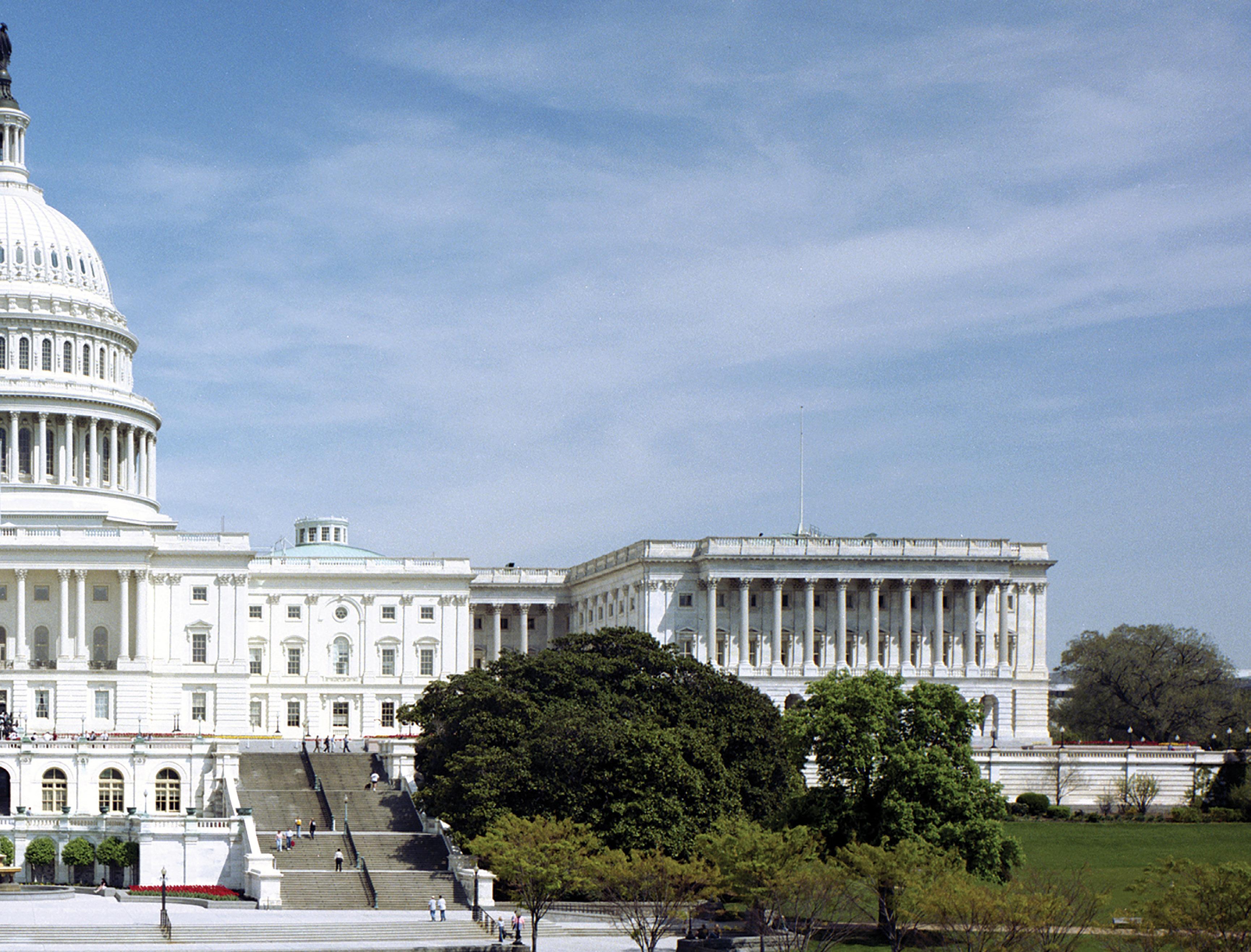
With the help of millions of Alzheimer’s disease advocates, leading scientists, and congressional leaders, the United States Congress and the president agreed to increase funding for Alzheimer’s research by an additional $350 million. The augmentation represents a more than 50 percent increase for the 2016 fiscal year and is an important step in arming researchers with the tools they will need to eradicate the disease.
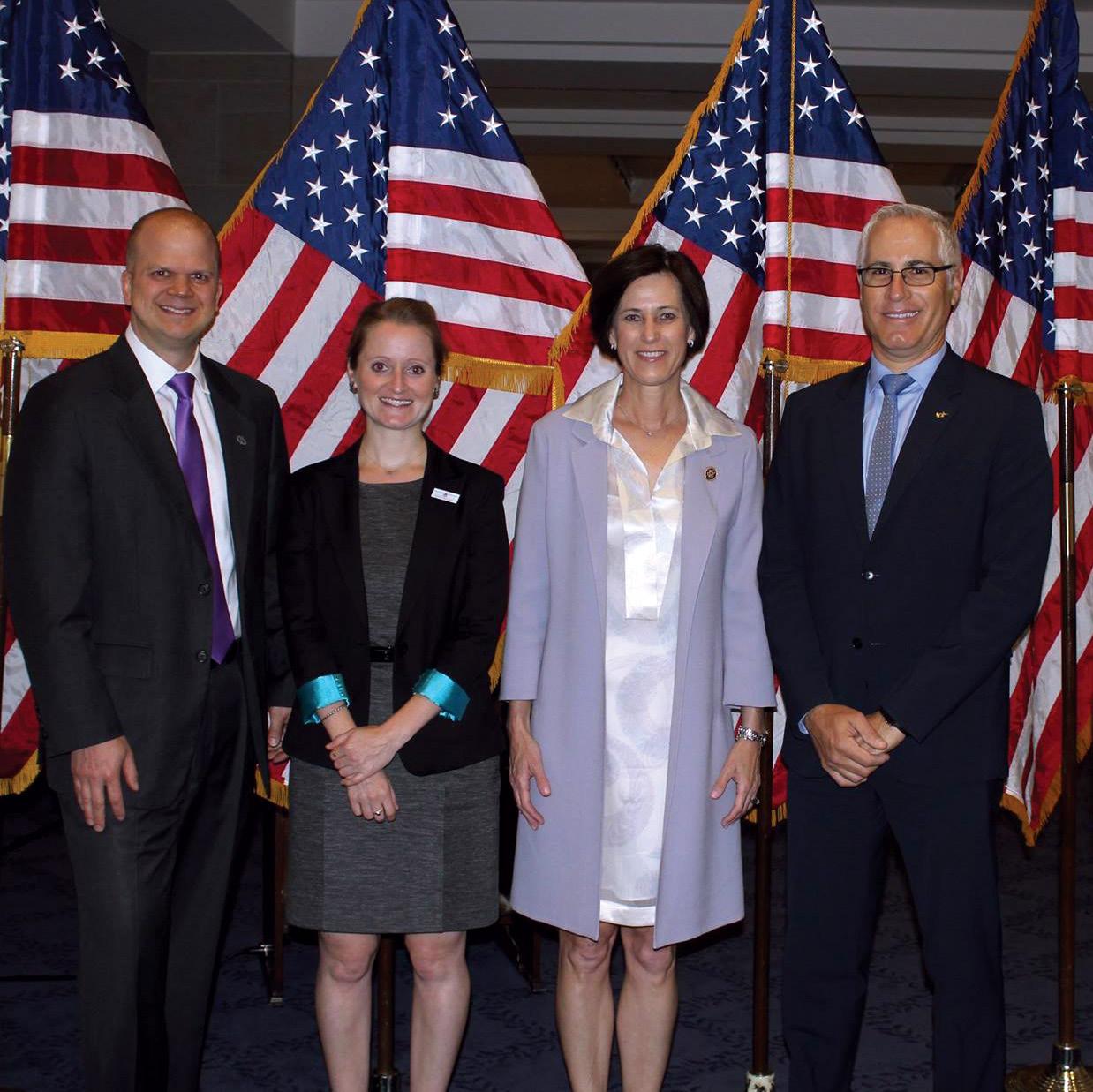
974 nine seventy four
New first-year students, Fall 2015 50%
146
New Transfers, Fall 2015
12
New Doctoral Students
46 New Master’s Students
UCI was ranked the #1 “greenest” school in the nation according to a Sierra Club magazine study.
63
225
Total undergraduates enrolled at the Ayala School Undergraduate Degrees, awarded Total of 288 graduate students at the Ayala School Graduate Degrees, awarded Doctoral Doctoral Masters Masters
32
36
Percentage of students in the Life and Health Sciences at UCI who are first in their family to attend college.
UCI ranks in the Top Ten among public universities in the nation, according to U.S. News & World Report Top Ten!
UCI was ranked #1 in the U.S. in promoting economic diversity among its student body, according to a New York Times study.
Money magazine rated UCI the top campus for beach lovers in 2015.
UCI is Orange County’s second-largest employer, contributing $4.8 billion annually to the Southern California economy.
The Ayala School offers a Doctoral Degree in Biological Sciences, three Master’s Degrees and ten Bachelor of Science degrees.

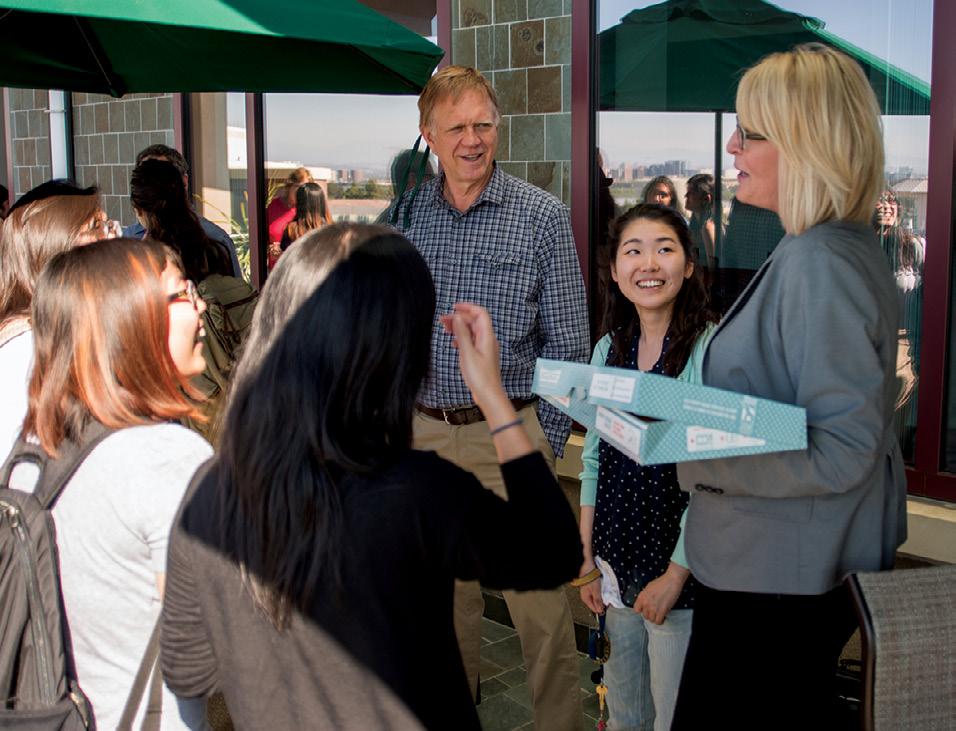
The Ayala School hosted its second annual faculty and staff appreciation picnic. Food was provided by the In-N-Out Burger truck and a good time was had by all.



The Hana and Francisco J. Ayala Dean hosts quarterly get-togethers with the Ayala School students. This special event, called “Donuts with the Dean”, is held on the 5th floor patio outside the Offices of the Dean in Natural Sciences II. This interactive and fun event enables students to mingle with the dean and faculty in an informal setting while providing them with mentorship opportunities and career advice.
• Biochemistry and Molecular Biology - B.S.
• Biological Sciences - B.S., M.S., Ph.D.
• Biological Sciences and Educational Media Design - M.S.
• Biology/Education - B.S.
• Biotechnology Management - M.S.
• Developmental and Cell Biology - B.S.
• Ecology and Evolutionary Biology - B.S.
• Exercise Sciences - B.S.
• Genetics - B.S.
• Human Biology - B.S.
• Microbiology and Immunology - B.S.
• Neurobiology - B.S.




Thanks to the inventive efforts of Drs. Luis Mota-Bravo, Marlene de la Cruz and Francisco J. Ayala, the Ayala School has emerged as a national leader for training a diverse group of young people in the science, technology, engineering, and mathematics (STEM) fields. Our School has received national praise for its efforts in developing programs to increase the preparation of underrepresented students to pursue research careers in the life sciences. The Minority Science Program (MSP) has developed through a collaborative effort between the Ayala School and the National Institutes of Health (NIH).
Students in the MSP benefit from an array of academic activities. The primary goal of the program is to provide critical thinking and analytical skills to train the next generation of biomedical researchers. A unique feature of the Ayala School’s MSP program is that students participate in a diverse array of research training, including opportunities to develop independent projects with national and
international faculty mentors, opportunities to network with investigators at top-ranking institutions and preparation to present their research projects at national conferences.
In 2015, undergraduates participating in research training in the Ayala School MSP received 21 awards for their research presentations at four national conferences. These undergraduates participated in original research conducted in laboratories at UCI, Howard University, King’s College London and CBMSO-Spain, as part of the MSP training activities supported by grants from the NIH.
Twelve MSP trainees received awards at the Annual Biomedical Research Conference for Minority Students (ABRCMS) Conference in Seattle, Washington; these include, three UCI undergraduates that participated in the UCI NIH-MHIRT program at King’s College London and CBMSO-Spain; and two students from Fullerton College that participated in the UCI NIH-Bridges to Baccalaureate Program and conducted their research at UCI. ABRCMS is one of the largest

professional conferences for underrepresented students in biomedical sciences, attracting over 1,700 student presenters from 350 U.S. colleges and universities. UCI was one of the universities with the largest number of awards. ABRCMS is sponsored by NIH and organized by the American Society of Microbiology.
At the 2015 Society of Hispanic/Chicano and Native American Scientists National Conference in Washington DC, one MSP undergraduate received an award. SACNAS is a society of scientists dedicated to fostering the success of Hispanic/Chicano and Native American scientists – from college students to professionals – to attain advanced degrees, careers, and positions of leadership in science.
Two MSP trainees received awards at the Sigma Xi International Research Conference in Kansas City, Missouri. Sigma Xi is the international honor society for scientists and engineers with nearly 60,000 members including more than 200 Nobel Prize-winning members.

Lastly, six MSP students received awards at the poster competition of the 2015 American Association for the Advancement of Sciences
annual meeting in San
The
is the world’s largest general scientific society. This research poster competition is open to undergraduate and graduate students from domestic and international institutions.


Annual Biomedical Research Conference for Minority Students
Osasumwen V. Aimiuwu and Dr. Kimberlei Richardson (PI)
Research Title: Activational Differences of Orexin Neurons in Binge Eating Prone and Binge Eating Resistant Female Rats
Poster category: Neurosciences
Tiffany N. Batarseh, Dr. Lili Mesak and Dr. Luis Mota-Bravo (PI)
Research Title: Nine Plasmids Discovered in a Multidrug Resistant Escherichia coli Isolate
Poster category: Physiology
Arsany R. Bechay and Dr. Setsuko Sahara (PI)
Research Title: Modelling Macrocephaly Using Human Induced Pluripotent Stem Cells
Poster category: Molecular and Computational Biology
George Chavez, Dr. Andrey Tatarenkov and Dr. Luis Mota-Bravo (PI)
Research Title: The Prevalence of fimH in Escherichia coli Isolated from the Environment
Poster category: Microbiology
Monica E. Espinoza, Alberto J. Lopez, Dr. Marcelo Wood (PI)
Research Title: Determination of Medial Habenula Activity throughout Cocaine Exposure and Withdrawal
Poster category: Developmental Biology and Genetics
Michelle Herrera and Dr. Donovan German (PI)
Research Title: Sequence and Expression of the Bmp4 Gene in the Family Stichaeidae
Poster category: Developmental Biology and Genetics
Carolina A. Herrera, Dr. Margarita Del Val and Dr. Silvia Lázaro (PI)
Research Title: TAP-Independent Antigen Presentation of Vaccinia Virus Antigens
Poster category: Immunology
Alberto E. Lopez and Dr. Clemens Kiecker (PI)
Research Title: The Effect of Fetal Alcohol Exposure on Thalamic Development
Poster category: Developmental Biology and Genetics
Jonathan M. Mendez, Dr. Lili Mesak and Dr. Luis Mota-Bravo (PI)
Research Title: Spread of ISEcp1 Transposition Unit Carrying bla Gene in Gram-Negative Bacteria
Poster category: Developmental Biology and Genetics
Jessica Nevarez-Mejia, Dr. Lili Mesak and Dr. Luis Mota-Bravo (PI)
Research Title: New Plasmids from Environmental Acinetobacter sp.
Poster category: Molecular and Computational Biology
Ryan Peña, Dr. Andrey Tatarenkov and Dr. Luis Mota-Bravo (PI)
Research Title: Chloramphenicol Resistance in Environmental Escherichia coli
Poster category: Physiology
Cynthia I. Rodriguez, Dr. Andrey Tatarenkov and Dr. Luis Mota-Bravo (PI)
Research Title: Antibiotic Resistant Genes in Carbapenemase Producing Klebsiella pneumoniae
Poster category: Social and Behavioral Sciences and Public Health
(Society of Hispanic/Chicano and Native American Scientists)
Priscilla San Juan, Dr. Andrey Tatarenkov and Dr. Luis Mota-Bravo (PI)
Research Title: Antibiotic Resistant Genes in Integrons from Environmental Enterobacteriaceae
Poster category: Ecology and Evolution
Michael R. Emami, Dr. Xiang Li and Dr. Timothy W. Bredy (PI)
Research Title: Sex-specific Patterns of the Neuroepigenome within the Neocortex are Associated with Sex Differences in Fear-related Learning and Memory
Poster category: Behavioral and Social Sciences
Priscilla San Juan, Sana Al-Saleh and Dr. Stephen Sturzenbaum (PI)
Research Title: The Effects of Perchlorate Exposure on Growth and Lipid Metabolism in the Model Nematode Caenorhabditis elegans
Poster category: Agriculture, Soil, and Natural Resources/Environmental/Science/Geosciences
(American Association for the Advancement of Sciences)
Winner: Eden Barragan and Dr. Diane O’Dowd (PI)
Research Title: Effects of Anticonvulsants and Monoamines on Seizures in Mutant Drosophila
Poster category: Brain and Behavior
Honorable Mention: Walter Guerrero and Dr. Oswald Steward (PI)
Research Title: PTEN/SOCS3 Co-Deletion Accelerates Functional Recovery Following Peripheral Nerve Damage
Poster category: Brain and Behavior
Winner: Michael Emami and Dr. Baljinder S. Mankoo (PI)
Research Title: Investigating the Role of Meox2 in Myogenic and Tendon Differentiation
Poster category: Developmental Biolgoy, Physiology, and Immunology
Honorable Mention: Hector F. Sanchez, Dr. Andrei Tatarenkov and Dr. Luis Mota-Bravo (PI)
Research Title: Novel ampC Beta-Lactamase Genes from Morganella morganii
Poster category: Environment and Ecology
Honorable Mention: David Saldana and Dr. Harley I. Kornblun (PI)
Research Title: Inhibition of Polo-like Kinase 4 as Therapy for Glioblastoma Primary Brain Tumors
Poster category: Medicine and Public Health
Winner: Horacio Estabridis and Dr. Elliot L. Botvinick (PI)
Research Title: Elucidating the Stiffness of Extra-Cellular Matrix Fibers with High Speed Microscopy
Poster category: Technology, Engineering, and Mathematics
In 2014, The Rose Hills Foundation awarded UC Irvine $700,000 to support students in the pursuit of training in science, technology, engineering or math (STEM) fields. The Rose Hills Foundation was established following the sale of Rose Hills Memorial Park in Whittier, California, with the goal of providing a measurable impact on area residents. The new UC Irvine Rose Hills Foundation Undergraduate Science & Engineering Scholarships will assist up to 18 high-achieving undergraduates annually for four consecutive years.
Ten undergraduates from the Ayala School received the prestigious Rose Hill Foundation Undergraduate Science & Engineering Scholarship. We recognize that the world is becoming increasingly complex, and future success is driven not only by what one knows, but by how one applies that knowledge. As a result, our students are provided with the knowledge and skills to solve tough problems and to gather and evaluate evidence with analytical rigor.
Our School’s mission is consistent with the goals of The Rose Hill Foundation, and represents a source of pride for us to be able to partner with such outstanding philanthropic organizations to help us reach such important goals.
Scholarship Winners:
– Nujhat Ali – Catherine Ly – Richelle Roelandt Lu Homo
– Karen Bradshaw – Mikayla Mager – Mary Sargious
– Marina Germanos – Victor Quach
– Melissa Huang – Ryan Ripperdan


We value our students’ achievements and strive to give recognition to outstanding members of our student body. One such student, fourth- year Biological Sciences major Drake Dinh, embodies what it means to be a successful Ayala School undergraduate. Drake has learned to successfully balance his academic commitments with his extracurricular activities, including pursuing an undergraduate research project. He has been conducting undergraduate research for over 2.5 years. His research focus is on studying the involvement of endogenous cannabinoid signaling molecules in neuropsychiatric conditions, such as autism and drug addiction.
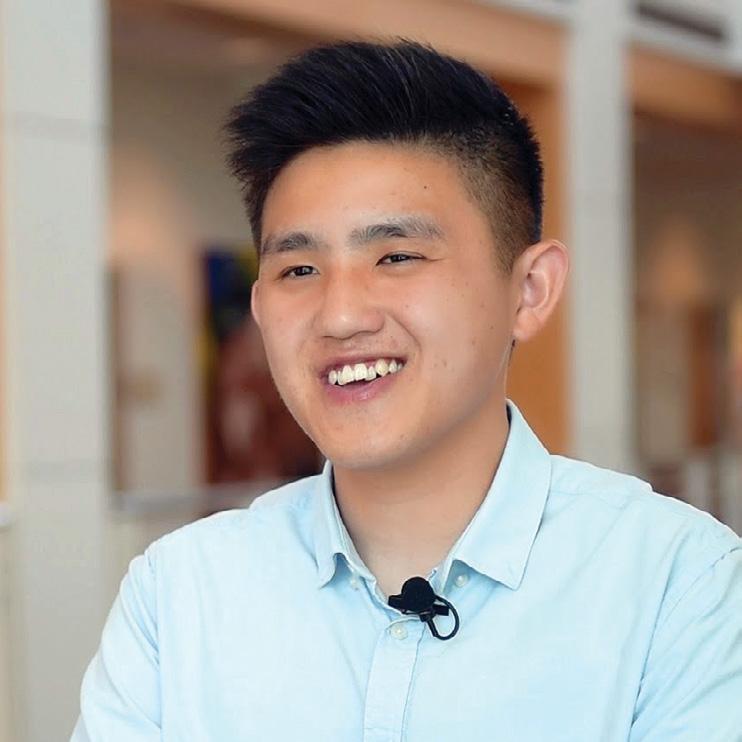
In addition to research, Drake volunteers as a member of the Flying Samaritans Club where he serves as the club’s vice president. As vice president, he has helped set up free medical clinics in the city of El Testerazo, Baja California. He has been able to develop skills by working side by side with the volunteer doctors that will assist him in his future career goal of becoming a pharmacist.
“I would advise students to take advantage of all the resources UCI has to offer – from the mentorship program, research opportunities, and countless clubs, there are so many ways for students to grow as scholars,” says Drake. “Search out and talk to professionals in your field of interest! They have so much knowledge and experience, and are often eager to mentor you.”
The XIV Dalai Lama Endowed Scholarship Fund was established in 2005 in honor of his holiness’ first visit to UCI. The fund is comprised of donations from private citizens and foundations committed to peace and positive global relations. The scholarships are awarded to UCI undergraduates that demonstrate outstanding academic achievement, and a commitment to helping others. The recipients of the scholarship become part of a larger global community, working together to promote the awareness of global responsibility, and/or peace. The selected student of the Dalai Lama scholarship receives an award of up to $10,000 from UCI for fees, along with a grant of up to $6,000 from the Dalai Lama Fellows to support project costs.

On July 6th & 7th 2015, UCI had the honor of co-hosting the XIV Dalai Lama’s 80th birthday. The celebration took place at the UCI Bren Events Center with two sessions per day. The main message of the celebration was consistent with the philosophy of the Dalai Lama: that world peace and happiness must begin with inner peace and happiness. During the event, former Ayala School student, and Dalai Lama Scholar, Armaan Rowther joined the Dalai Lama to share his message.
Mary Sargious
Molecular Biology and Biochemistry / 2015-2016
Soraya Azzawi
Neurobiology and Political Science / 2012-2013
Armaan Rowther
Biological Sciences / 2011-2012
Doug Cheung

Neurobiology / 2010-2011
Bethel Mesgana
Biological Sciences and Social Sciences / 2010-2011
Rajiv Ramdeo
Biological Sciences / 2006-2007






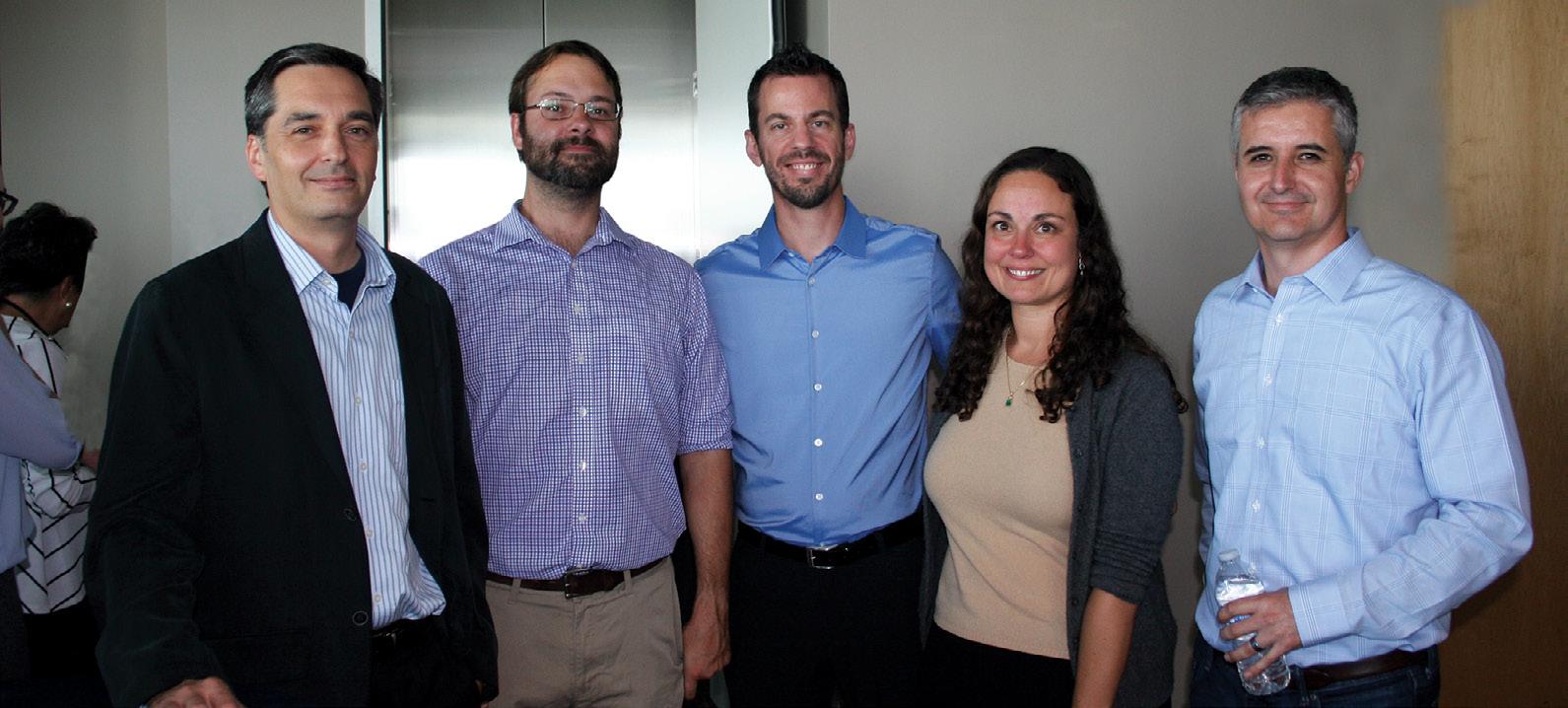
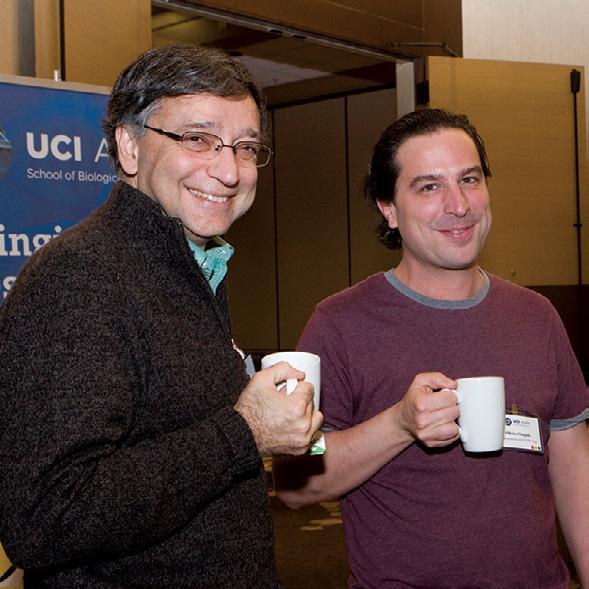


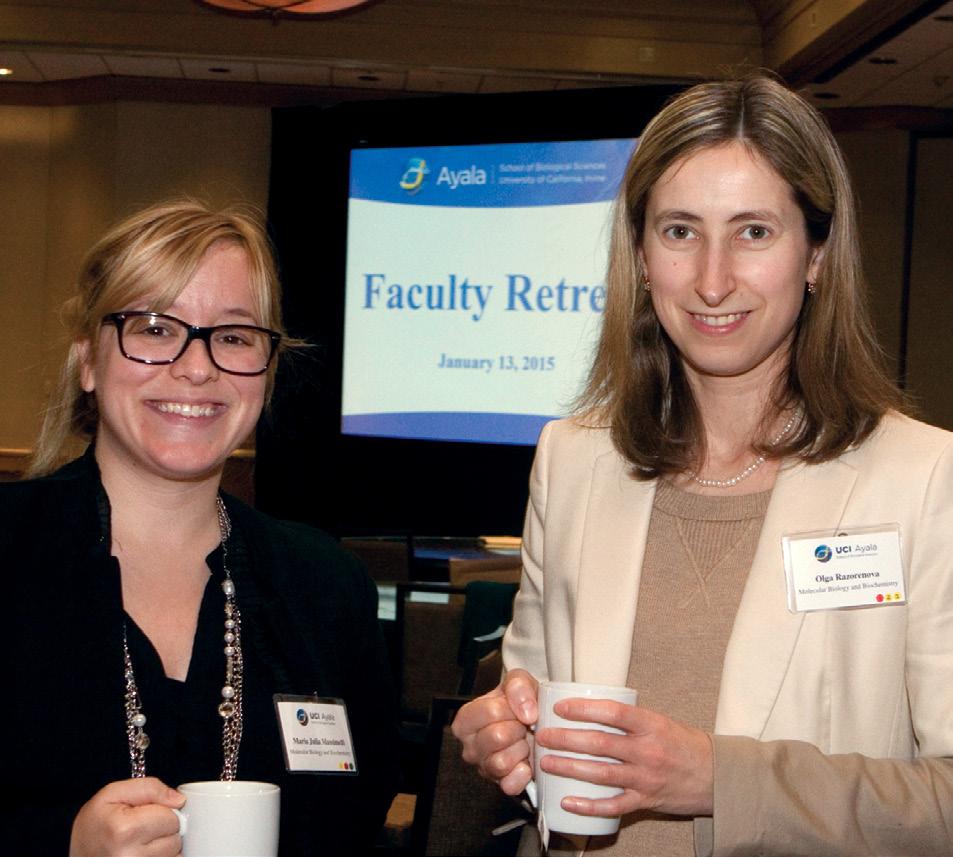





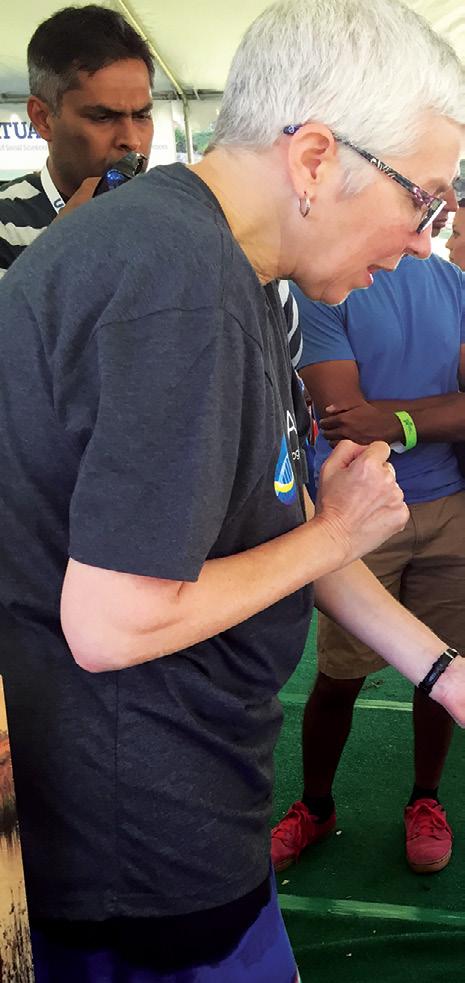









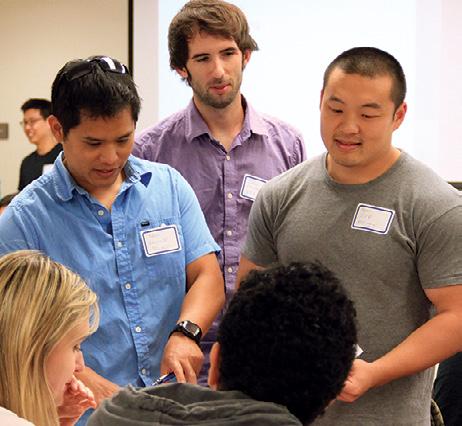

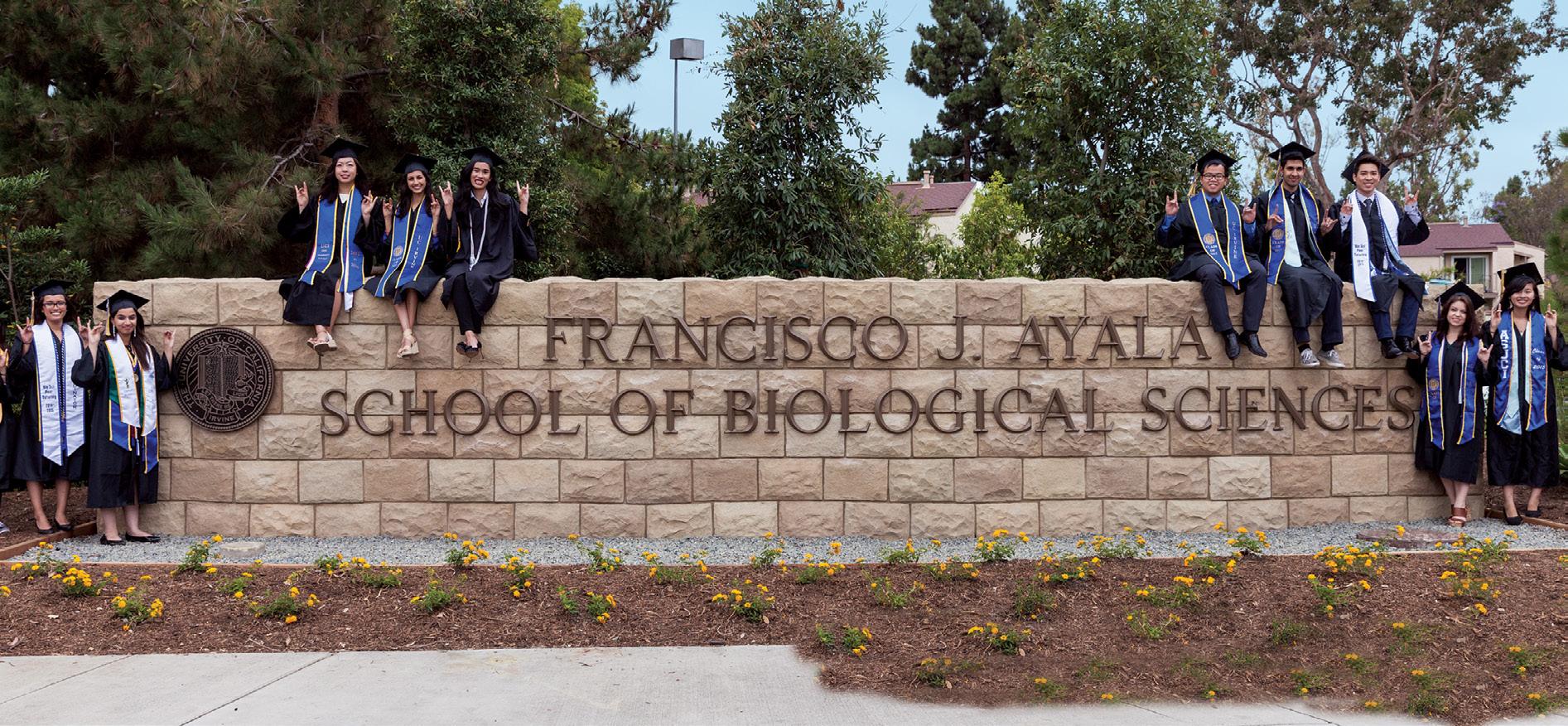








Community support begins with awareness. As such, the School has made it a priority to host frequent events and lectures from Nobel Laureates and other distinguished researchers. With help from generous donors within the community, these events are free to the campus and the community.
This year the Ayala School was privileged to host two Nobel Laureate lectures. Former UCI researcher Dr. Mario Molina and Dr. John O’Keefe, University College London, were invited to give presentations summarizing their distinguished research careers.
John O’Keefe, Ph.D.
“Reverse Engineering the Brain’s Cognitive Map”
March 30, 2015
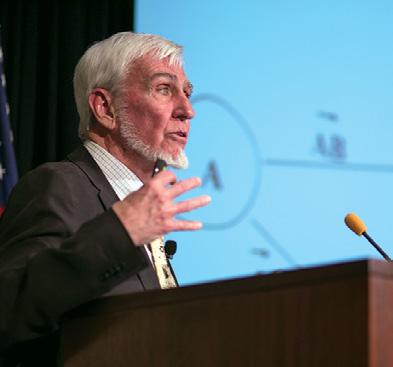
Mario Molina, Ph.D.
“Science and Policy of Climate Change”
Oct. 28, 2015

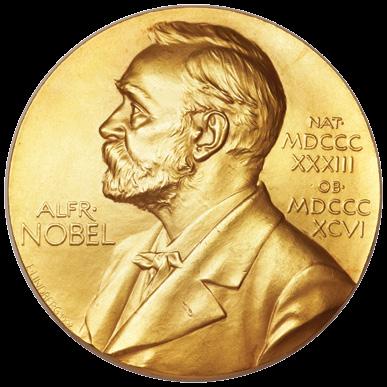
The Dean’s Distinguished Lecture Series was created in 2014 to disseminate knowledge about the cuttingedge research being performed by Ayala School faculty. The series is sponsored on a quarterly basis by the Hana and Francisco J. Ayala Dean and is open to the campus community and the public. Selected faculty speakers from throughout the Ayala School’s departments present research on a wide range of topics, from the smallest molecules to the vast ocean.
Susan V. Bryant, Ph.D.
“Regeneration Pattern-Stem Cells”
March 5, 2015

John C. Avise, Ph.D.
“Inside the Human Genome: Darwin or Intelligent Design?”
May 7, 2015

Leslie M. Thompson, Ph.D.
“Huntington’s Disease: A Race Against Time”
Oct 13, 2015

The Allergan Lecture Series is supported by the Allergan Foundation. This lecture series was created to provide a new outlet for the Ayala School to share important new discoveries related to health and science that would appeal to the community at large. The series features prominent scientists from both national and international institutions.
Arthur W. Toga, Ph.D.
“Mapping the Structure and Function of the Brain –Where We Were, Where We Are, and Where We Want to Be”
April 30, 2015
Mitchell F. Brin, M.D., FAAN
“BOTOX (onabotulinumtoxinA): 25+ Years of Scientific and Therapeutic Innovation”
December 3, 2015
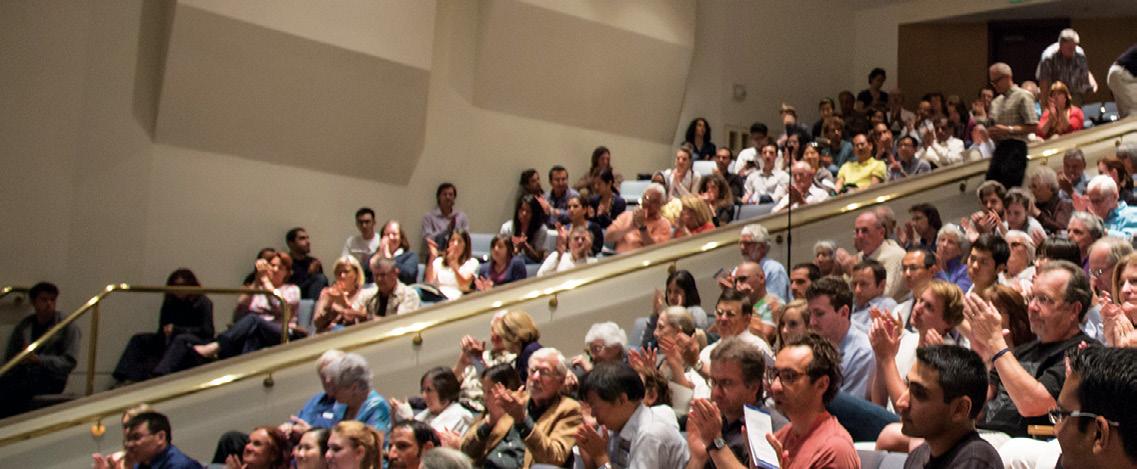



Today, more than ever, scientists are having a broad impact on diverse career fields including: pharmaceutical and biotechnology development, government and science policy, intellectual property law, and business. In line with this trend, the university launched the UCI Graduate Professional Success in the Biomedical Sciences (GPS-BIOMED) on January 27, 2015, which aims to better prepare graduate students and postdoctoral scientists for diverse careers, and empower trainees to become not only skilled scientists, but also polished professionals.
Funded by the NIH-BEST grant awarded to David Fruman, Professor of Molecular Biology and Biochemistry, GPS-BIOMED equips trainees with the knowledge, skills and networks to become competitive candidates for the current workforce. Through the program, trainees explore diverse careers through on-campus internships and by attending quarterly seminars featuring Ph.D. alumni working within local companies. In addition to career exploration, graduate students and postdocs are training to become better leaders and communicators.
It’s truly a transformative time for biomedical research training at the Ayala School, and GPS-BIOMED is on the front lines, providing innovative programs to prepare trainees who are better informed and ready to make a difference in the world through the application of their interests and skills.
For more information or to register for the program, please contact eflores@uci.edu or call 949-824-8372.


By inviting alumni back to campus, “We aim to strengthen current connections to industry and make new inroads to Orange County businesses.”


The Ayala School of Biological Sciences, in partnership with the School of Physical Sciences, will offer for the first time a Postbaccalaureate Premedical Program. This is designed for students who have successfully completed an undergraduate degree in a non-science discipline and are now seeking a postbaccalaureate program that will help them complete the required basic core courses for pre-medical and other allied health professions admission. Designed as a career-changer certificate program, this full-time, two-year program provides students with the necessary academic preparation to excel in a health professional curriculum. If interested, visit postbacc.bio.uci.edu.
“With the well-respected and rigorous academic standards the UC Irvine Ayala School of Biological Science upholds, participants of the new Postbaccalaureate Premedical Program will be fully equipped with a strong competitive advantage,” said Dean LaFerla. “Highly motivated students with a commitment and genuine passion for medicine are perfect candidates for this program.”
The Ayala School Dean’s Leadership Council is the main community and industry link to the Hana and Francisco J. Ayala Dean. The board consists of alumni, industry leaders and other community friends. The council’s primary responsibilities include advising on the mission and purpose of our programs, and other measures to enhance the overall public standing of the Ayala School.
Brian Atwood ’74
Managing Director, Versant Ventures
Mitchell Brin, M.D.
Sr. Vice President, Global Drug Development & Chief Science Officer, Botox Allergan, Inc.
Ed Chang ’84 Vice President, Avenu Medical
Jacqueline Dupont, Ph.D.
CEO, Dupont Residential Care, Inc.
David Hanson ’87
Sr. Site Director of Operations, Abbott Cardiovascular Systems
Diana Hendel, PharmD. ‘85
Nikki Iravani, OD ’86* Founder & CEO, EyeXam
William Loudon, Ph.D., M.D.
Section Chief for Pediatric Neurosurgery, Children’s Hospital of Orange County
Mohannad S. Malas* CEO, IRA Capital, LLC
Maria Minon, M.D. ’72,’76
Vice President of Medical Affairs & Chief Medical Officer, Children’s Hospital of Orange County
Michael O’Connell Executive Director, Irvine Ranch Conservancy
David J. Perry, Esq. Partner, K&L Gates
Richard Sudek, Ph.D. ‘81* Executive Director, UCI Applied Innovation
*New member in 2015/16



The Ayala School warmly welcomes the active involvement of alumni and community friends!
The Ayala School Alumni Chapter was started in 2009 with the purpose of bringing together Ayala graduates to foster community, establish traditions and reconnect with the School. At its founding, the Alumni Chapter consisted of only 6 members, now there are over 300 members and the Chapter has an official partnership with UC Irvine Alumni Association, including a board position. The Ayala School Alumni Chapter welcomes additional members to network, reconnect with old friends, and support the Ayala School. There is no fee to join, and registering takes only minutes.

Visit bio.uci.edu
The Ayala School Program provides an opportunity for undergraduate students to supplement their classroom curriculum and enhance their understanding of various careers. Alumni and community professionals share their knowledge and experiences to provide students with an insight of the working world. Not only do our students get the opportunity to gain professional experience in the Mentors Program, but they also get a chance to form networks that will benefit them upon graduating with a Biological Sciences degree. Now in its 15th year, the program is larger than ever with 128 active mentors.

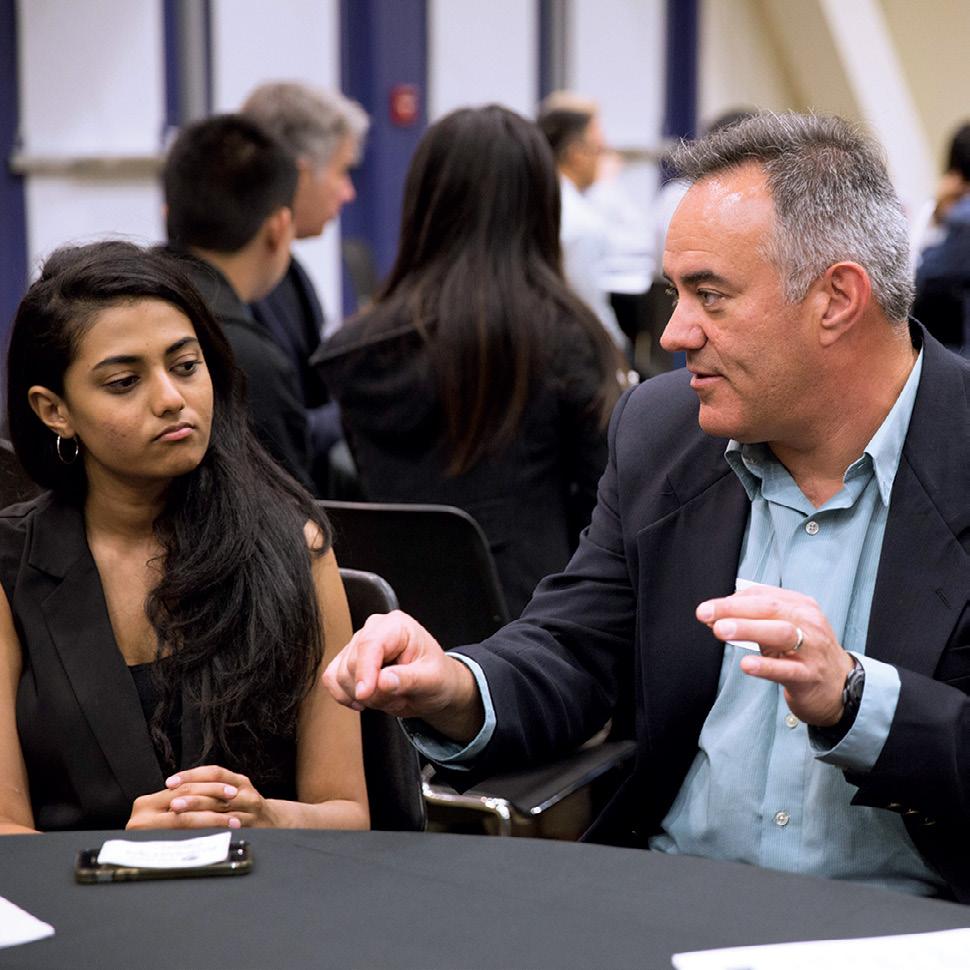
The Ayala School seeks to enrich the lives of our alumni and engage them in the lifelong advancement of their alma mater. We believe that by focusing our efforts on engaging alumni in meaningful ways, we will show how the Ayala School continues to be relevant and impactful in their lives. To further the mission of establishing a lifelong engagement with our alumni, we have created the Ayala School Alumni Board. The alumni board will consist of undergraduate and graduate alumni, and offer support and guidance for already established engagement programs, and the establishment of new programs.


The Francisco J. Ayala School of Biological Sciences is at the forefront of a new biological frontier, one that is multi-disciplinary in approach and engages faculty, students and the citizens of our communities in discovery, treatment, and healing of our world’s most pressing biological problems.
The Dean’s Loyalty Program was created to recognize individuals who have been contributing faithfully to the UCI Francisco J. Ayala School of Biological Sciences. Their generous gifts support educational initiatives, innovative research projects and collaborative initiatives within UCI.
Donors are recognized by the number of years they have supported the students, faculty, and programs of the Ayala School. All gifts of any size contribute to the success of the School and pave the way for the future.
Members – 5 Years
• Pins that designate level
• Recognized on website
• Reserved seating for all Ayala School lectures
Fellows – 10 Years
• Pins that designate level
• Recognized on website
• Reserved seating for all Ayala School lectures
• Breakfast with Dean LaFerla
Innovators – 15 Years
• Pins that designate level
• Recognized on website
• Reserved seating for all Ayala School lectures
• Special reception with Dean LaFerla
• VIP dinner receptions for evening school lectures
Visionaries – 20 Years
• Pins that designate level
• Recognized on website
• Reserved seating for all Ayala School lectures
• Private dinner receptions for evening school lectures
• Private dinner reception with Dean LaFerla
Founders – 25 Years
• Pins that designate level
• Recognized on website
• Reserved seating for all Ayala School lectures
• Private dinner receptions for evening school lectures
• Private dinner reception with Dean LaFerla
• Special name recognition (name on plague, induction event, etc)
M. Marlene Godoy, D.D.S. (B.S. ’76) has been actively involved with the Ayala School and campus for decades. In 1980, she was the recipient of the Alumni Association’s Lauds and Laurels, which was followed by eight years as Vice President of UCIAA. Her involvement with the School and our students began when she became an early participant in the Ayala School Mentors Program. Dr. Godoy has mentored 10 undergraduate students, providing sage advice as they navigate through the curriculum and plan for their professional careers. In 2001, Dr. Godoy established the M. Marlene Godoy Endowed Student Award, an annual merit-based financial award for a promising young undergraduate in the Ayala School. In 2008, she was chosen to be the Commencement Speaker for the Ayala School. This past year, Dr. Godoy became engaged with our newly launched Exercise Medicine and Sports Sciences Initiative, and she underwrote tuition reimbursement for eight students who were accepted to a summer exchange program with Tsukuba University in Japan.
Shortly after, Dr. Godoy made her greatest gesture by naming the Ayala School as a beneficiary of her estate to create an endowed scholarship to support undergraduate students in the Exercise Sciences major.
For students at the Ayala School, such scholarship opportunities can greatly impact their success both during their academic studies and beyond. Mounting student debts create a great deal of financial and emotional hardship, and divert attention away from the dedication to rigorous academic work that is required from them in the hyper-competitive field of life sciences. Relieving students of this financial burden will help ensure their academic pursuits, and Dr. Godoy’s name will be tied to this success in perpetuity.
The Ayala School is proud to honor Dr. Godoy for her foresight, generosity, and care.
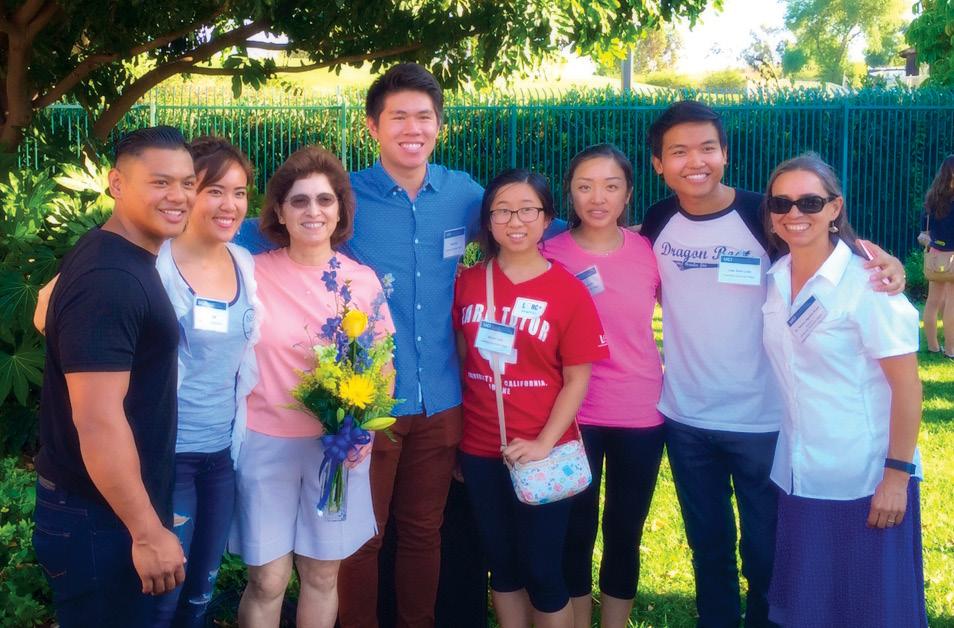

The Department of Neurobiology and Behavior held a naming ceremony to honor one of its founding faculty. Dr. Norman M. Weinberger, a Professor Emeritus in the department, was honored with the renaming of the executive conference room in the Bonney Research Laboratory Building; the space will now be referred to as the Weinberger Conference Room. Sadly, Dr. Weinberger passed away a couple months later, after a long illness.


Dr. Weinberger was a world renowned neuroscientist, a pioneer of auditory research, and a founding faculty member at UCI. The ceremony was held in the courtyard of the Center for the Neurobiology of Learning and Memory. Before the ceremonial ribbon cutting by Dr. Weinberger, several prominent faculty members from the Ayala School gave heartfelt accounts of their professional and personal relationships with Dr. Weinberger.
Those who spoke included Ayala School Dean Frank LaFerla, Neurobiology and Behavior Chair Marcelo Wood, founding faculty member and former Ayala School Dean James L. McGaugh, and Director of the Center for the Neurobiology of Learning and Memory John Guzowski. Also on hand were several members of the Weinberger family, and a number of faculty members, students, and staff. Before the unveiling Dr. Weinberger gave a brief but humble speech; he thanked his family and colleagues for all their years of support and expressed his gratitude for having the opportunity to lay the foundations for the department and UCI. He then went on to mention how proud he was about the excellent research done at the department and the international prominence it has received. The ceremony continued with the ribbon cutting, before concluding with light refreshments and conversation.





Susan V. Bryant, Ph.D., is as passionate about the field of biology now as she was as an elementary school student exploring the plants and animals around her. Her early experiences with science motivated her to earn a bachelor’s degree in zoology from King’s College London. She then went on to earn a Ph.D., from the University of London.
“I was greatly influenced by my science teachers at an early age. I remember being very curious about many things, but biology was the only science that I really loved, then and now!”
Upon completing her Ph.D., Professor Bryant worked as a postdoctoral researcher at Case Western University with one of our founding faculty members and former dean, Howard Schneiderman, Ph.D. When Professor Schneiderman moved his lab to UCI, he recruited Dr. Bryant to UCI as a lecturer, where she later became an assistant professor.
“UCI was a brand new campus of the UC system and it was full of excellent people that joined the campus taking a risk that it would become a success. Not only has UCI survived, it has become well-established and is competitive with the best universities anywhere in the world.”
During her time at UCI, Professor Bryant established an international reputation for being a distinguished researcher, a dedicated teacher and mentor, and a strong leader. She worked tirelessly on behalf of inclusive excellence, and to promote women in science, earning the respect of her colleagues both in and outside of the university. Professor Bryant’s research is focused on identifying the regenerative-enabling signals found in the limbs of salamanders in order to one day utilize
these signals to replace or repair damaged body parts in humans. Her research has resulted in over 100 publications in prestigious journals and numerous awards and recognition. Some of her career highlights include being elected as a fellow to the American Association for the Advancement of Science and membership in the Association for Women in Science. In 2010, she was awarded the UCI Medal, the university’s highest honor bestowed on individuals who’ve made remarkable contributions to UCI.
The contributions of Professor Bryant to the Ayala School and UCI do not stop at the research level. Professor Bryant has also served in many leadership roles during her illustrious career. She has served as the chair of the Department of Developmental and Cell Biology. Professor Bryant also served as dean of the Ayala School of Biological Sciences from 2000-2006, during which she was instrumental in positioning UCI as a world leader in stem cell research. After serving as dean, she was appointed as the vice chancellor for research, and in this role, Professor Bryant oversaw significant increases in extramural support and strengthened the university’s research centers. Later she went on to help the campus as interim executive vice chancellor and provost in 2012.
Lastly, in addition to Professor Bryant’s research and service contributions to the university and the Ayala School, she has also worked tirelessly on behalf of equity and diversity. Professor Bryant was awarded a National Science Foundation grant to develop new policies to increase the number of women in faculty positions at the university.
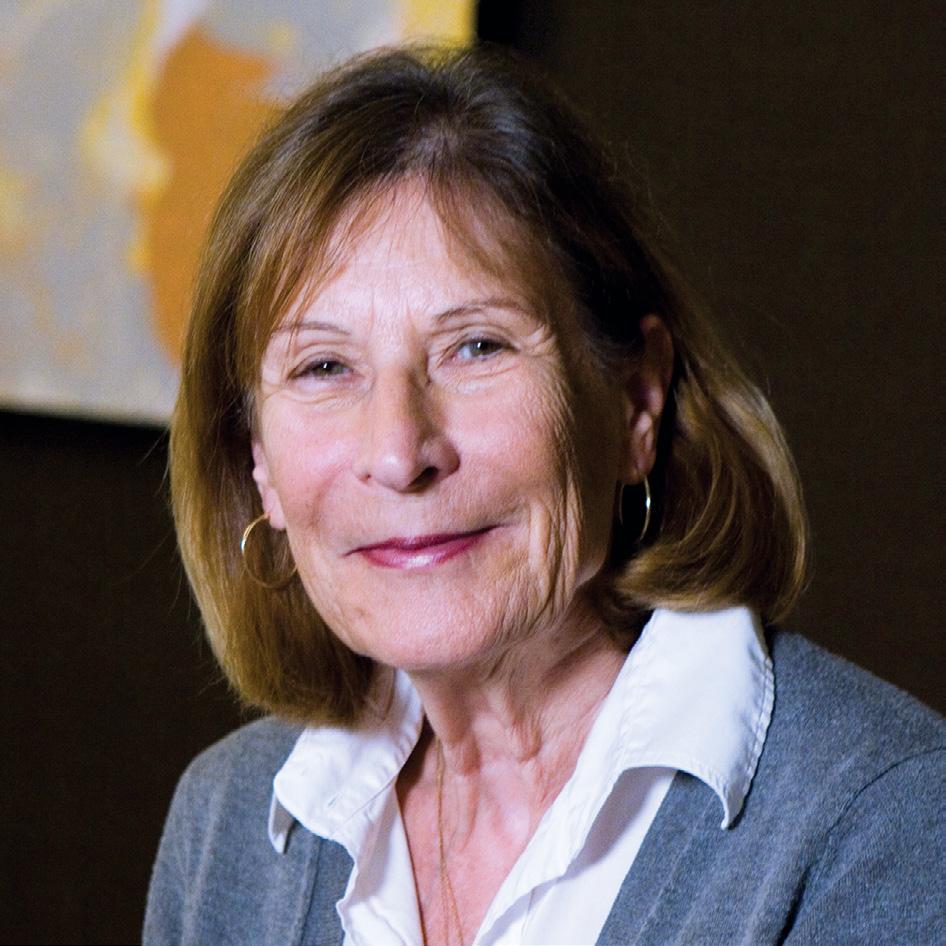
Because of her leadership, commitment to service, and distinguished research career, Professor Bryant is a highly regarded scientist and one of UCI’s living legends. We are proud that she is a member of the Ayala School of Biological Sciences.

Frank M. LaFerla, Ph.D. Hana and Francisco J. Ayala Dean

David M. Gardiner, Ph.D. Associate Dean of Research and Academic Affairs

Michael Leon, Ph.D. Associate Dean of Undergraduate Studies

R. Michael Mulligan, Ph.D. Associate Dean of Graduate Studies

Georg Striedter, Ph.D. Equity Advisor


Benedicte Shipley
Assistant
Dean

Robert Avalos Executive Director of Development

Andrew DiNuzzo Senior Director of Development

Brian Han Associate Director of Development

Soares Marketing and Design Associate

Hung Fan, Ph.D. Awards and Honors Advisor

Rahasson Ager, Ph.D. Communications Associate

Thomas F. Schilling, Ph.D. Chair

Andrea M. Wiley Department Administrator
MOLECULAR BIOLOGY AND BIOCHEMISTRY

Christopher C. Hughes, Ph.D. Chair

Bessy J. Varela Department Administrator
ECOLOGY
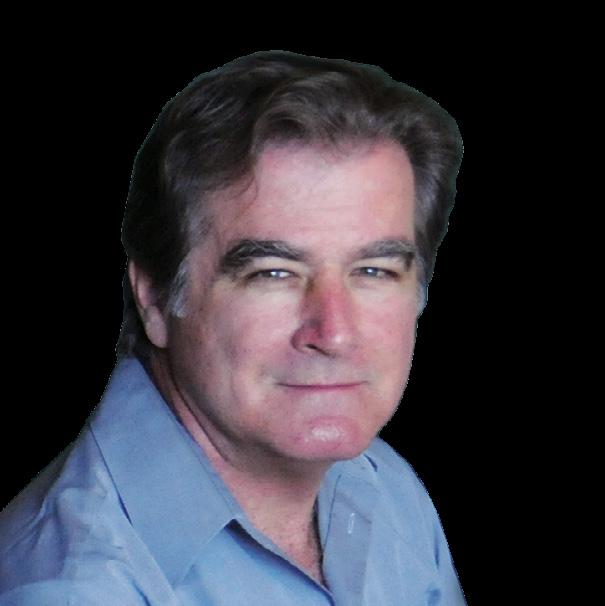
Laurence D. Mueller, Ph.D. Chair

Marissa R. Reyes Department Administrator
NEUROBIOLOGY AND BEHAVIOR
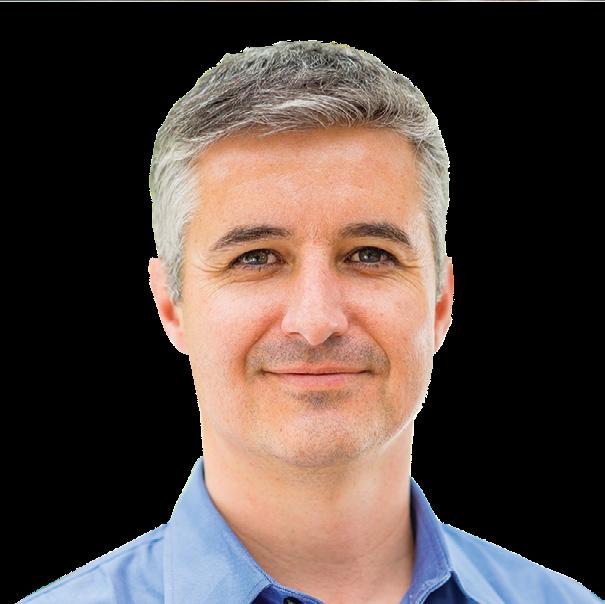
Marcelo A. Wood, Ph.D. Chair
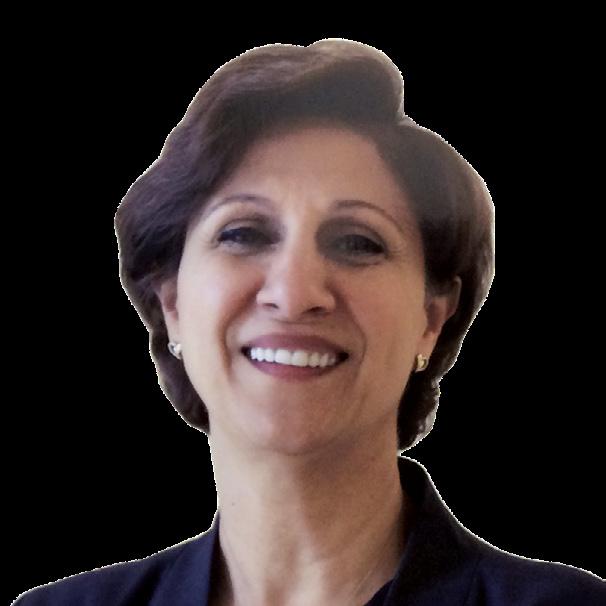
Sally F. Dabiri Department Administrator

Francisco J. Ayala, Ph.D. Ecology and Evolutionary Biology

Timothy J. Bradley, Ph.D. Ecology and Evolutionary Biology

Anthony A. James, Ph.D. Molecular Biology and Biochemistry

Arthur D. Lander, M.D., Ph.D. Developmental and Cell Biology

Susan V. Bryant, Ph.D. Developmental and Cell Biology

James L. McGaugh, Ph.D. Neurobiology and Behavior
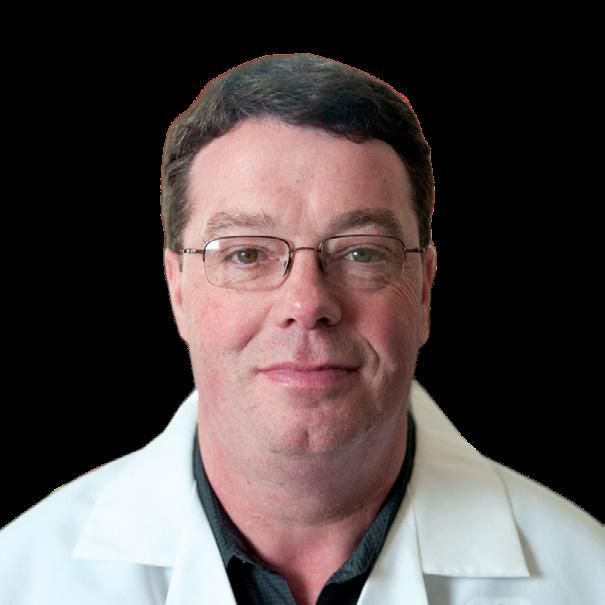
Peter J. Donovan, Ph.D. Developmental and Cell Biology

Andrea J. Tenner, Ph.D. Molecular Biology and Biochemistry
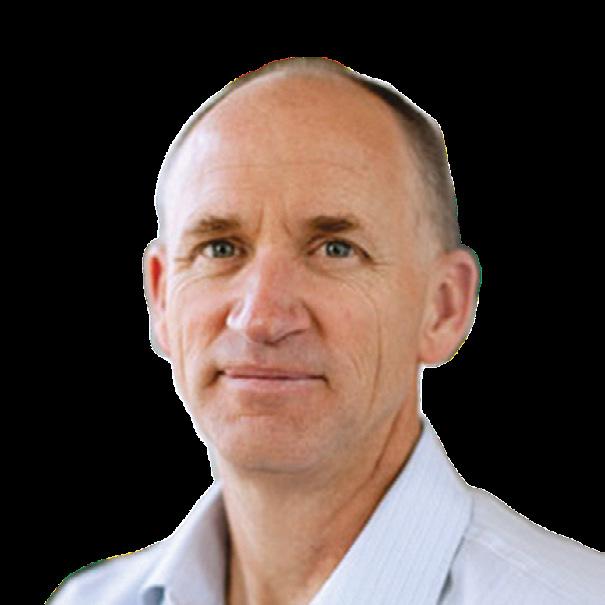
Brandon S. Gaut, Ph.D. Ecology and Evolutionary Biology
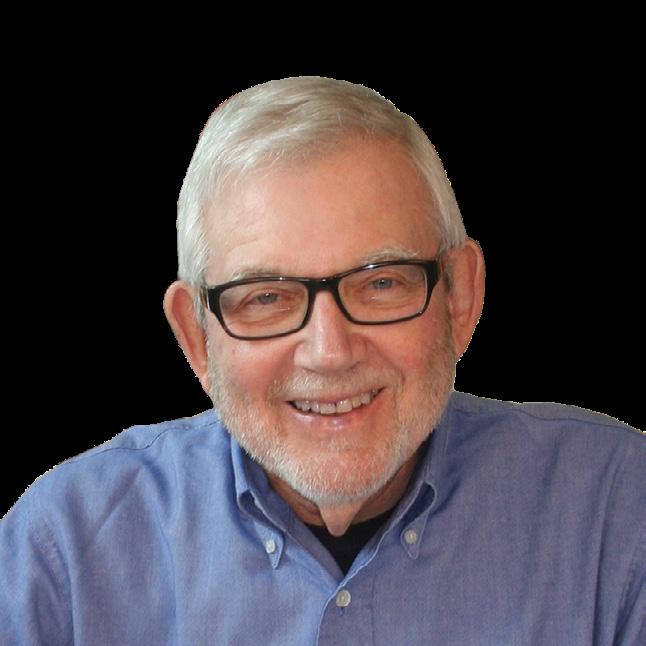
Norman M. Weinberger, Ph.D. Neurobiology and Behavior
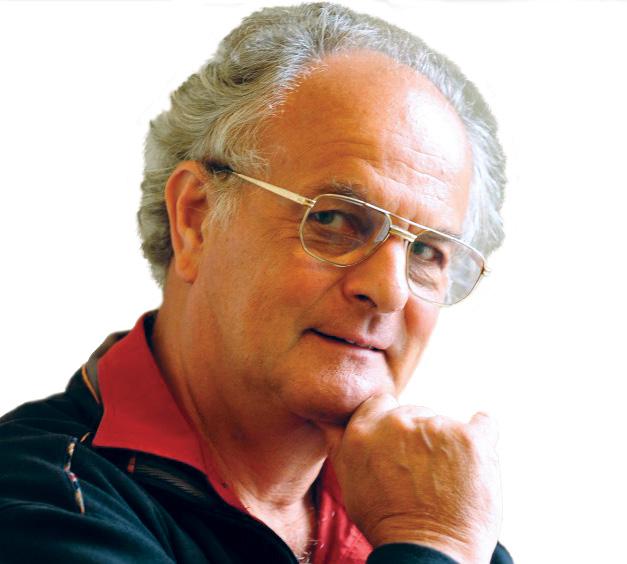
Hans-Ulrich Bernard, Ph.D. Molecular Biology and Biochemistry

Hung Fan, Ph.D. Molecular Biology and Biochemistry

Shin Lin, Ph.D. Developmental and Cell Biology

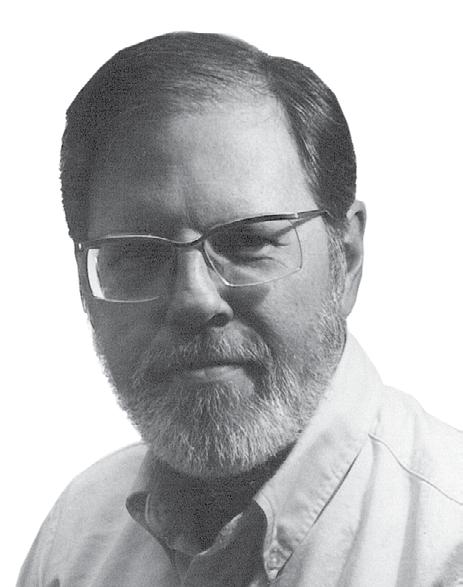
Rowland Davis, Ph.D. Molecular Biology and Biochemistry
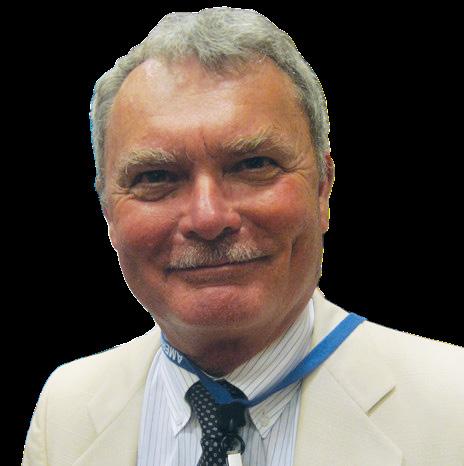
Alexander McPherson, Ph.D. Molecular Biology and Biochemistry
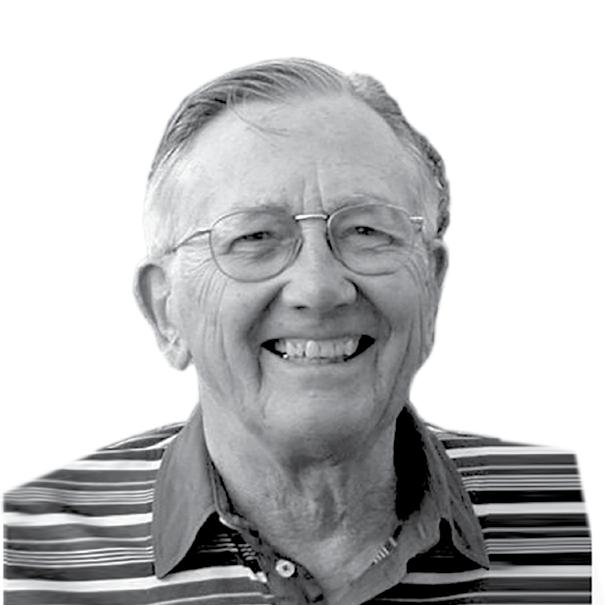
Keith Justice, Ph.D. Ecology and Evolutionary Biology

Patrick Healey, Ph.D. Developmental and Cell Biology
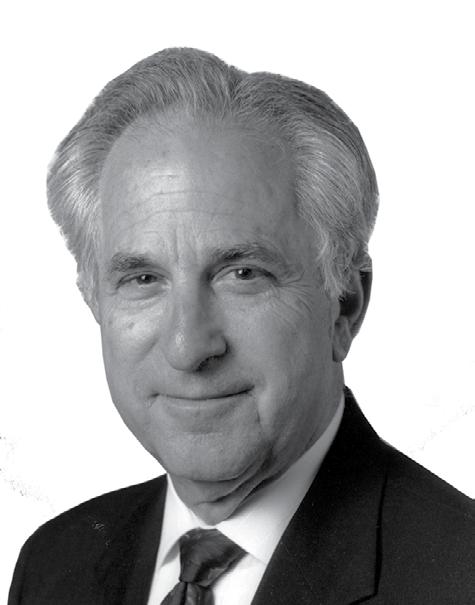
Jack W. Peltason Emeritus Chancellor of UCI and Emeritus President of the University of California
25+ YEARS OF GIVING
Ruth Forer
Salvatore Lombardi
Mae Varon
20+ YEARS OF GIVING
Leland House
John Howell
Mathilde Klee
Sharon Kusano, ‘83
Josephine Mehlman
Christopher Reed
Merle Robboy
John Stahr
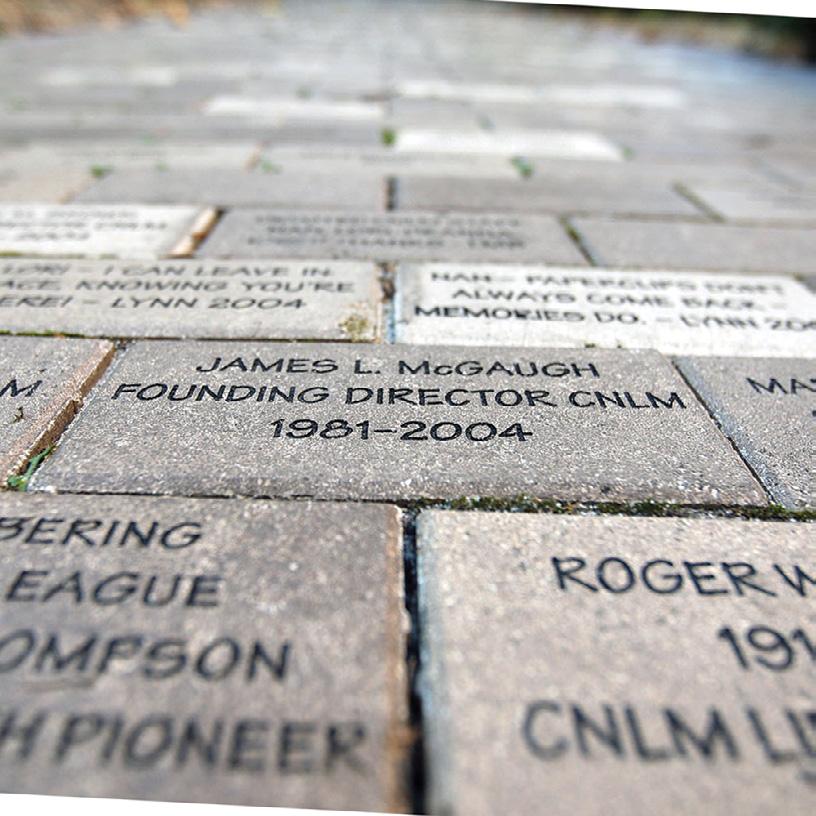
Brian Atwood, ‘74
Sameer Awsare, ‘85; ‘89
Aki Caszatt, ‘76; ‘78
Sharon Dana, ‘84
Meridel Daniels
Susan Eckhardt, ‘83
W. Fidler
Kirby Fong
Fred Gillett
Dolores Gitlin
M. Godoy, ‘76
Lois Groendycke
Susanne Haffner
William Halopoff
Steven Kahanic
Jean Kay
Diana Kiel, ‘81
Joseph Kuwahara, ‘77; ‘78; ‘78
George Long
David Macys, ‘69
Mary Malinick
James Matthews, ‘78
Jewel Mehlman
Craig Miller, ‘78; ‘80
Marcia Miyoshi, ‘80
Blake Neubauer, ‘75
Yuri Parisky, ‘79
Julia Poirier
Bernard Rabins
Valerie Randolph, ‘74
Michael Riber
Madonna Saxton
Karl Schiller
Audrey Schneiderman
Janet Smith
Ann Stephens, ‘70
Leslie Sterrett, ‘79
Carolyn Stewart
James Sullivant, ‘76
A. Taylor
Richard Thompson, ‘73
Carl Weinert
Ted Weyand, ‘73
Richard Widman
LeRoy Wong, ‘75
Lawrence Wysocki, ‘75
Larry Yip
Thomas Akashi, ‘73
John Alder, ‘74; ‘74
Robert Anderson
Gail Baker, ‘74
Hugh Berkley, ‘74
Judy Blackman
William Bockus, ‘72
Cristy Brenner
Lisa Brown, ‘79
Betty Brynan
George Buhler
Dale Burke, ‘68
Robert Byde, ‘69; ‘75
Ethel Cate
Robert Chapman
Stefani Ching, ‘83
Lynn Churchill, ‘73
John Chwistek
Sharon Cohoon
Tracy Cooke, ‘85
Rosaleen Cox
Cecil Crafts
Barbara Cronin
Ann Cullen
F. Dupuie
Edith Emch
Jane Englar
Nancy Englund
Robert Ferazzi
Miriam Feuerman, ‘86
Michael Foertsch
Richard Gabbay, 1973
Louise Garrison
Dianne Gillespie
Stephen Gray, ‘76
Robert Gorkin, ‘71
Guy Gottschalk, ‘70; ‘74
David Greenberg, ‘78
Dieter Gries
Katharyn Hagen, ‘82
Jay Hall
James Harrison, ‘71
Ann Heiney
Craig Henderson, ‘85
G. Herrick
Clifford Hitomi, ‘80
Penelope Hlavac
John Holcombe
Judy Horton
Daniel Hovenstine, ‘79; ‘79; ‘80
Karen Imfeld, 1985
Steven Izumi, ‘77
Anthony James, ‘73; ‘79
Ruth Johnson, ‘73
Ralph Jones
Denis Kitayama, ‘76
Diana Krause, ‘72
David Lake, ‘72
Rosalie Lowe, ‘82
Gregory Marrujo, 1974
Carl Martz, ‘81
Roberta Massoth
Frank Mayer, ‘75
Roger Mayer, ‘73
Gary McCaughan, ‘77
Walter Mitchel
James Mitchell, ‘78
Arline Nakanishi, ‘85; ‘85; ‘86
Nancy Neely
Anita Nelson, ‘77
Quyen Nguyen, ‘94
Gayle Nobbs, ‘69
Blossom Norman
Margaret Ogden
David Ortez, ‘69
Bernard Pallares, ‘80
Patrick Pearce, ‘72
Ronald Perez
Thomas Priester, ‘73
Roger Rains, ‘74
Janet Randel, ‘73
Jeffrey Rey, ‘72
Donald Rezek, ‘75
David Roberts, ‘73
Ronald Richmond
Kathryn Rittner-Echols
Bill Robinson
Carol Roller
Rosalie Rosenthal
Allan Rosevear
Shirley Saturensky
Robert Schier
William Schwartz, ‘71
John Schweikle
Synthia Scofield
James Seibert, ‘76; ‘76; ‘81; ‘83
Jean Siegel
Edith Shields
Maclyn Somers
Ann Stallings, 1975
William Stanton
Ralph Steiger, ‘73
Susan Stemmer, ‘76
Patricia Stephenson
April Stilson, ‘77
George Stone, ‘72; ‘76
David Sword, ‘85
Peter Syapin, ‘72; ‘77
Roger Takla
Ronald Tamaru, ‘78
Helen Tangcay
Matthew Thomas, ‘90
Daniel Tremblay
Deborah Tucker, ‘74
David Usher, ‘69
Marsha Vacca, ‘71
Deidre Vail, ‘73
Louise Van Cott
Richard Wagner, ‘75
Leslie Walker
Beverly Weber-Fow
Karin Westerling, ‘84
Mary White
James Whitelaw
Michael Whitlow, ‘75
Elwyn Winland
Calvin Yee, ‘79
Jerome Zack, ‘76


